Discoveries for life
The faces of health research 2023
| Title |
|---|
A multicenter randomized controlled trial involving the transfer of healthy gut bacteria may help patients combat antimicrobial resistance
Clostridioides difficile infection (CDI) – which affects the large intestine – can repeatedly recur among patients because they are often treated with antibiotics that disrupt healthy gut bacteria and lead to antibiotic resistant genes and multi-drug resistant bacteria (MDRB). As a result, an invasive infection with MDRB can have serious and deadly consequences. Fecal microbiota transplantation (FMT) has been shown to be a very safe and effective treatment for recurrent CDI because it transfers gut bacteria to a patient from a healthy donor. Dr. Kao from the University of Alberta is part of a multicenter study in six countries that will allow her research team to compare the use of freeze-dried FMT in a pill form to the standard antibiotic used for patients who experience the first episode of CDI. It may help reduce CDI recurrence risk and MDRB among patients and restore the microbial community. Dr. Kao’s team will also collect patient samples to see how this process works at a molecular level. If found successful, FMT may represent an important alternative to antibiotics when addressing MDRB. Further reading |
Identifying environmental and occupational causes of cancer
Structural, physical, and chemical exposures of our environment may be beneficial or harmful to our overall health. Because the current evidence to chronicle the potential carcinogenicity of most of these exposures is insufficient, it’s difficult to prevent cancer in the population. Dr. Parent from Institut national de la recherche scientifique uses epidemiological methods to identify how exposures in both the general and workplace environments can increase the risk of developing cancer. She specifically studies how environmental causes can lead to prostate cancer. While exposure to some pesticides is associated with the development of this cancer, nothing is known about the role of other environmental agents. Dr. Parent’s research has demonstrated how prostate cancer can manifest due to exposure to chemicals (such as metals, solvents, and air pollution) and workplace stress. Her research recently expanded to show how the social environment can lead to a poor outcome for widowed men who have been diagnosed with prostate cancer. This novel finding points to a vulnerable population that could benefit from increased clinical surveillance. Her research has also provided landmark findings into how cellphones can play a role in the development of brain tumours. Further reading
|

Filling the Gap: Providing supportive and inclusive medical services to transgender youthWhat are the main barriers to health care access for transgender youth and adolescents? And how can we reduce these disparities? In the face of stigma and discrimination, accessing safe, inclusive, and gender-affirming health care services remain a critical challenge in Ontario—as evidenced by the high rates of depression and anxiety, low self-esteem, problematic substance use, self-harm, and alarming suicide rates among transgender individuals. Dr. Alex Abramovich, a Canada Research Chair in 2SLGBTQ+ Youth Homelessness and Mental Health, at the Institute for Mental Health Policy Research, Centre for Addiction and Mental Health (CAMH), is leading an effort to understand the unique obstacles confronted by transgender youth and adolescents, especially the intersection between mental and physical health. This project employs a combination of administrative data analysis and in-depth one-on-one interviews to shed light on critical aspects of transgender youths’ health care experiences and needs. Dr. Abramovich and his team will study the health care experiences of approximately 3,000 transgender youths through health data collected from community and hospital clinics. As a transgender identified researcher, Dr. Abramovich has been a pillar for the community, advocating for inclusive and safe spaces for over 15 years. Dr. Abramovich brings a unique perspective and understanding to his work, as he understands on a personal level many of the issues that transgender people experience. The findings of his study have the potential to be a catalyst for a positive change, from influencing clinical decision-making processes and enhancing education for families, to refining the training provided to health care professionals and advocating for policies that promote inclusivity and affirmation for transgender individuals. Dr. Abramovich aspires to offer well-informed recommendations that can shape the creation of safe, supportive, and inclusive medical services tailored to help transgender youth as they transition into adulthood. His insights will pave the way for a more targeted approach and hopefully transform existing services so that they are more effective, empowering transgender youth to lead healthy, fulfilling lives. This journey is driven by a deep commitment to ensuring that transgender youth get the support and resources they deserve to thrive on their unique life paths. Institute |
National screening network may help delay or prevent T1D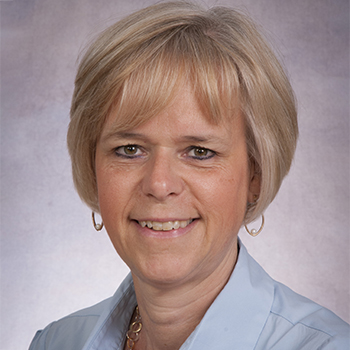
Type 1 diabetes (T1D) is a chronic health condition that affects 300,000 Canadians. Currently, 33,000 children (aged 5-18) have the disease and its prevalence in Canada is increasing. The process that leads to T1D begins long before symptoms are seen, but children are typically not diagnosed until they develop symptoms of high blood sugars and can develop life-threatening complications - such as diabetic ketoacidosis. With consultations with Canadian children, diabetes doctors, geneticists and counsellors, newborn screeners, researchers, policy makers and person(s) with lived T1D experience, and local and international advisory groups, a research consortium led by Dr. Wherrett from The Hospital for Sick Children (SickKids) and the University of Toronto is designing a national screening network called CanScreenT1D that will help identify whether children have an increased risk of developing T1D. The team will establish key laboratory and clinical infrastructure and conduct a program evaluation that will allow for earlier diagnoses of the disease so that diabetic ketoacidosis can be avoided. The research team will also increase access to treatments that can either delay or prevent the development of T1D among people through connections with ongoing research initiatives. Further reading |
Improving diagnostics and therapeutics for ovarian cancer
The diagnostic procedure for most cancers focuses on biopsies or serum biomarkers as well as use of imaging techniques such as PET, MRI and/or CT. However, for many cancers this is not proving to be accurate enough. A biopsy relies on sampling the tumor but this often leaves the physician without knowledge of the extent of the disease. MRI and CT scans mostly only provide anatomical information. CA125 is a biomarker that is used to detect ovarian cancer (OC), and it is abundant on the surface of OC cells. However, its accuracy in detecting early-stage disease is <60%. Dr. Fonge and Dr. Uppalapati from the University of Saskatchewan will develop a specific probe that can be used with PET imaging to improve diagnosis of MUC-16 proteins on ovarian cancer cells. They will implement an antibody that can target the abundance of MUC-16 and kill cancer cells with a potent ionizing radiation. This radiation treatment - called alpha particles – could also potentially be used to stimulate different immune cells within the tumor microenvironment. Dr. Fonge and Dr. Uppalapati will also study how radiolabeled antibodies can be used to stimulate immune cells and work with other immune checkpoint inhibitors. Further reading |
Greater insights into MAIT cells may lead to better interventions for sepsis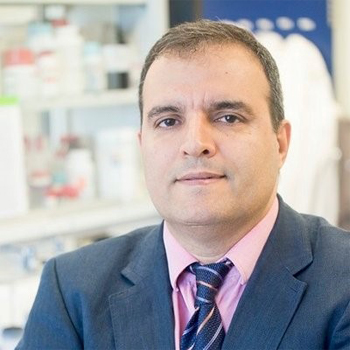
According to recent estimates, 1 in 18 deaths in Canada is related to sepsis, and the cost of treating patients who have this condition is approximately $325 million every year. Caused by a disproportionate inflammatory response to an infection, sepsis is a complex and multi-stage condition. While improvements in intensive care and resuscitative measures have lowered the mortality of early sepsis, many survivors face long-term complications, including immunological impairments. Because there is currently no cure for sepsis, Dr. Haeryfar from Western University is trying to understand how inflammatory responses are shaped in early sepsis and how a progressive decline in mucosa-associated invariant T (MAIT) cell numbers and functions may contribute to sepsis-induced immunosuppression over time. Using clinically relevant mouse models and blood samples from critically ill septic patients to examine MAIT cell responses to infections, Dr. Haeryfar’s research team hopes to come up with novel interventions that will both help moderate inflammatory responses in early sepsis and resolve immunosuppression in the protracted phase of this devastating condition so that lives and taxpayer dollars can be saved. Further reading |
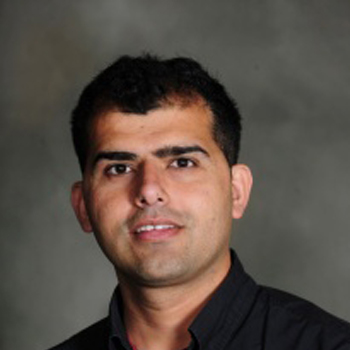
Researching sex differences in right-sided heart failureMajor gaps currently exist in our understanding of the heart's right ventricle and the role of progesterone in heart failure You might remember from biology class that there are four chambers in the heart: the right and left atriums and the right and left ventricles. This is good to know, since heart conditions often impact only one side of the heart. And just to complicate things further, there might be sex differences in how heart failure develops in biological males and females. Dr. Ketul Chaudhary in the Department of Physiology at Dalhousie University is currently studying sex differences in right ventricular heart failure to determine how the female sex hormone progesterone impacts the function of the right ventricle and its role in heart failure. According to Dr. Chaudhary, little is known about the impact of biological sex on the function of the right ventricle in a healthy heart and in heart disease. In fact, we generally know less about the right side of the heart than the left side. With heart failure rates increasing and burdening Canada's healthcare system, developing a novel and specific therapy for right-sided heart failure will improve life for tens of thousands of Canadians annually. Armed with new knowledge, Dr. Chaudhary and his team are looking for new therapies for right-sided heart failure that account for hormonal differences. This information is also vital for managing patients with altered sex hormones, such as women and others affected by polycystic ovary syndrome or menopause. Further reading |
Healthcare at the intersection of gender diversity and alcohol useResearch team will help identify alcohol risks and develop community-based solutions 
Alcohol and substance use are leading causes of illness and death in Canada, and there are gaps in our knowledge across the board. One glaring gap in care includes support for transgender and gender diverse people who struggle with alcohol problems. Because gender minorities experience daily stressors—such as discrimination and harassment—they often turn to alcohol for support. Dr. Dermody (she/her) at Toronto Metropolitan University has designed a study to find out more about the impact of these stressors among gender diverse Canadians. Her research focuses on identifying what triggers alcohol use, and then discovering ways to reduce the risk of subsequent harm (including structural changes that can eliminate gender minority stressors and the incorporation of community and social supports). Dr. Dermody wants to respect and embrace the gender diversity of Canadians so that partnerships between the community and healthcare providers can foster better treatments that will prevent harms caused by alcohol use. Further reading |
Designing healthcare that works for transfeminine peopleNew research will help provide new standard-of-care for cisgender and transfeminine women 
If you know the words 'microbiome' or 'microenvironment,' you've likely heard that a healthy gut biome can make someone a healthy person. But many of our body parts have their own microenvironments, including the penis and the vagina. The bacterial communities that are good and bad for health are different at these two sites. Through her research, Dr. Jessica Prodger at Western University is demonstrating how the microenvironment of a transgender woman's vagina is unique and requires different models of care. Many transfeminine Canadians undergo vaginoplasty, a gender-affirming surgery that uses penile tissue to create a vulva and vagina (often referred to medically as a neovagina). While the surgical outcomes are excellent, evidence-based guidelines on longer-term neovaginal care are completely lacking. Dr. Prodger wants to improve our understanding of the microenvironment of the neovagina, including the tissue microstructure, its bacteria and fungi, and local immunology. She will do this by designing evidence-based guidelines for neovaginal care. Dr. Prodger believes that the community engagement and interest surrounding this project really highlights its importance. Further reading |
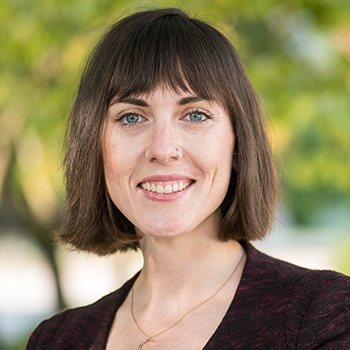
Beyond the stereotypes: new measures of gender equity and intimate relationships designed by gender-diverse youthNew study, led by Dr. Kalysha Closson, aims to design best practices for measuring gender equity and healthy relationships We might not think of relationships and intimacy as areas of health research, but our partners and loved ones are important to our well-being. And the relationships of young people—complex, nourishing, supportive, sometimes messy—are excellent places to examine, critique, and ideally recommend new ways of measuring gender equity and the health of a relationships. Dr. Kalysha Closson, a Banting Fellow at the Center for Gender Equity and Health at the University of California, San Diego, has had a robust research career in gender and sexual health, which has led to her current study, the Relationship Equity and Intersectional Measurement Among Gender-inclusive YouNg people (RE-IMAGYN) project. The study, centered in British Columbia, aims to engage with young women and nonbinary youth to improve ways of tracking gender equity. By engaging young women and queer, nonbinary, and non-monogamous youth, Dr. Closson is determining new best practices for measuring gender equity and intimate relationships that are being developed by the very people they impact. Dr. Closson is also training Youth Research Associates to help with the study and engages regularly with a Youth Advisory Committee. The community involvement has been very rewarding. Often, youth sexual relationships, particularly among queer youth, are reduced to issues of risk factors for sexually transmitted infections. The intimacy and support gained from young people’s relationships are not accounted for in a lot of scientific research, which is why including the strengths of young queer relationships is so important. Her study offers new narratives which include more diverse populations and offer real experiences that can help young people build and maintain healthy intimate relationships. Further reading
|

Taking steps to understand the link between cancer treatment and diabetes riskExamining the impact of cisplatin on the development of type 2 diabetes Lahari Basu, Carleton University, PhD student The global prevalence of type 2 diabetes is rising at an alarming rate (over 480 million adults live with this condition today). Previous research has shown that cancer survivors are at an increased risk of developing type 2 diabetes and then face a higher risk of mortality. However, the reason why cancer survivors can develop type 2 diabetes is not well understood. Cisplatin is a commonly used chemotherapeutic agent used to treat a wide variety of cancers. The Bruin Lab has shown that exposure to cisplatin impairs beta cell function, a key characteristic of type 2 diabetes development. The overarching goal of my PhD is to understand how cisplatin causes beta cell injury. Through my research, I will expose mice to cisplatin and explore how it disrupts insulin secretion and then affects beta cell function and health. This will be a critical first step to design targeted interventions that will improve long-term metabolic health outcomes among cancer survivors and possibly reduce their risk of developing type 2 diabetes. Further reading |

Can a fecal microbiome transplant alter the progression of type 1 diabetes among patients?Rana Minab, PhD student, University of British Columbia Type 1 diabetes (T1D) is an autoimmune disease in which the immune system attacks the insulin-producing cells of the pancreas, and eventually destroys the body’s ability to produce insulin. While the causes of the immune attack are unknown, T1D has been linked to environmental factors - including antibiotics, viruses, and nutrition. These factors can cause a disturbance to the bacteria in the gut (called the microbiome) and trigger autoimmune responses that may lead to T1D. A recent clinical trial in the Netherlands demonstrated that stool transplanted from volunteers into people with T1D impacted the progression of the disease. To assess whether changes in the microbiome can slow progression of T1D and lead to a possible therapy, we will conduct human fecal microbiome transplants in a mouse model of T1D to understand the mechanism by which changes in intestinal bacteria may influence autoimmunity. Further reading
|

Birthing while Black in CanadaMeasurements of Black person-centred experiences in perinatal services Tamar Austin, PhD student, University of British Columbia As Canada begins capturing race-based inequities in education, incarceration, and mental health, the experiences and outcomes of Black women and people who give birth in Canada remain understudied. Research in the United States and United Kingdom have established that Black women and people who give birth are at an increased risk of maternal and neonatal mortality and morbidity. However, there is limited research in Canada to illustrate the full landscape of Black Canadian perinatal health – including the experiences of care for Black service users during pregnancy and birth. Ms. Austin from the University of British Columbia is exploring drivers of inequity and mistreatment within the current birthing landscape, and is trying to find community informed solutions. Using the Research Exploring the Stories of Pregnancy and Childbearing in Canada Today study dataset – which holds collected data regarding pregnancy and birth experiences from diverse populations across Canada – Ms. Austin plans to diverge away from Canada's traditional research approach of avoiding disaggregation regarding race and ethnicity identifiers. Her intersectional analysis methods will instead build critical analyses of Black maternal mortality, morbidity, and birthing experiences in Canada. Further reading |

How public safety personnel avoid treatments for PTSDRobyn E. Shields, University of Regina, PhD student Canadian public safety personnel (PSP) report posttraumatic stress disorder (PTSD) that’s nearly 10 times (23.2%) the size of the general public (2.4%). In the Diagnostic and Statistical Manual of Mental Disorders, Fifth Edition, Text Revision (DSM-5-TR), one of the criteria required to screen positively for PTSD includes reminders of the trauma. Work requirements likely prevent PSP from overtly avoiding external reminders of psychologically traumatic events (such as sirens or accident scenes). Ms. Shields from the University of Regina has demonstrated that the PTSD Checklist for DSM-5 (PCL-5) appears to systematically underestimate PTSD among PSP (because 2% of the sample managed to avoid the criterion through substance use and dissociation). She is currently collecting qualitative data regarding these avoidance behaviours in order to develop a revised and accurate screening tool that can lead to the facilitation of better mental health treatments for PSP. Further reading
|

Can kidneys with genetic variants repair themselves after injury?Exploring the role of pathogenic PAX2 variants in abnormally affected filtering units in a mouse model of scarred kidney tissue Joanna Cunanan, PhD Candidate, Toronto General Hospital Research Institute, University Health Network; Institute of Medical Science, University of Toronto Focal Segmental Glomerulosclerosis (FSGS) is a severe chronic kidney disease that injures the blood-filtering cells of the kidneys and often leads to kidney failure. Development of FSGS treatments has been stagnant for decades and it has been widely accepted that the kidney has a very limited capability to regenerate. We previously found that pathogenic variants in the PAX2 gene account for 4% of adult FSGS. My research explores what role PAX2 plays in normal kidney regeneration and how PAX2 variants lead to FSGS. My current findings show mice with PAX2 variants have more severe FSGS compared to normal mice, including worsened kidney tissue damage and severely impaired kidney function. I propose that kidney cells expressing PAX2 variants are compromised in their ability for cellular regeneration after FSGS injury. To test this, I am performing techniques that can identify thousands of genes and proteins at a single-cell level to comprehensively examine the molecular profile of PAX2-expressing kidney cells from normal mice and mice with PAX2 variants and compare their function and ability to regenerate kidney cells injured from FSGS. I will also perform experiments where PAX2-expressing cells are tracked using genetic and fluorescent markers to observe how they change throughout the course of FSGS injury and to determine whether they can regenerate the damaged kidney cells. In summary, my research explores the role of PAX2 in kidney repair mechanisms, with the broader goal of utilizing my findings to develop novel treatments for FSGS. Further reading |
Reorienting diabetes care in First Nations communities through empowerment, autonomy, and ownership for health and wellbeing
Diabetes rates in Canada are increasing, which poses an especially large burden on Indigenous communities across Canada. Largely due to intergenerational trauma from colonization, Indigenous Peoples are disproportionately affected by type 2 diabetes. Dr. Sumeet Sodhi is leading a research team hoping to learn whether a particular model of care for delivering diabetes prevention and treatment services leads to better outcomes in First Nations communities in Northwestern Ontario. Sumeet Sodhi is an associate professor at the Faculty of Medicine at the University of Toronto and the Academic Lead for the Indigenous Health Partners Program with U of T’s Department of Family and Community Medicine. She is also a staff physician at the Toronto Western Hospital Family Health Team and a clinician-scientist at the University Health Network (UHN). Her research is focused on amplifying the voices of vulnerable communities around the world to improve primary health care, with a focus on bringing a health equity and social justice lens to community-identified priories such as: improving diabetes outcomes in First Nations communities in Northwestern Ontario, addressing tuberculosis incidence in Nunavut, and investigating public health and primary care integration across high-, middle-, and low-income countries. Further reading
|
Privileging Indigenous knowledge to guide pediatric type 2 diabetes prevention with First Nations and Métis communities in Saskatchewan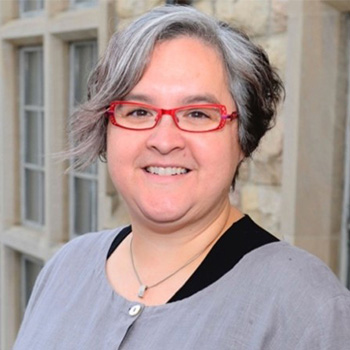
With Indigenous communities disproportionately affected by diabetes, it is crucial to include Indigenous perspectives in research to get to the root of the problem, to decolonize approaches to research and ensure interventions are relevant and sustainable over time. Dr. Sarah Oosman is the principal applicant of a research team aiming to promote First Nation and Métis youth health and prevent pediatric type 2 diabetes by developing, implementing, and evaluating a toolkit grounded in First Nation and Métis models of resilience and wellness. Sarah Oosman is a physical therapist and an associate professor at the University of Saskatchewan, and a researcher with the Saskatchewan Population Health & Evaluation Research Unit. She is a first-generation Canadian of mixed ethnicity, a settler ally, and is committed to Indigenous community-driven research that leads to the development and implementation of culture-based, relevant, and meaningful health promoting interventions across the lifespan. She is passionate about translating her experiential knowledge to teach physical therapy and medical students. Sarah works in close partnership with Métis and First Nation Peoples and communities. She is passionate about addressing health inequities through respectful relationships, partnerships, and safe, courageous conversations in classroom, clinical, community, and research settings. |
Community to community exchange for type 2 diabetes prevention
Diabetes is one of the most common chronic diseases affecting Canadians, and Indigenous communities are disproportionately affected by type 2 diabetes. They are diagnosed younger, have more severe symptoms when diagnosed, and experience poorer outcomes. Dr. Lucie Lévesque, a professor at Queen's University, is leading a multidisciplinary team of Indigenous and allied researchers to prevent type 2 diabetes in Indigenous communities. The team is an integral part of the award-winning Kahnawake Schools Diabetes Prevention Program which promotes healthy eating, physical activity and holistic wellness for Indigenous communities. Using a community-engaged approach that is based in a Haudenosaunee Two Row Wampum perspective, and with consideration for a diversity of genders, Dr. Levesque's team will study a community-to-community mentorship model to prevent type 2 diabetes. Their research will be the first to examine how community resilience can be used for type 2 diabetes prevention in Indigenous communities. Findings will help identify sustainable approaches to prevent type 2 diabetes that can be rippled to other communities across Canada to promote the wellness of Indigenous peoples. The team's co-principal applicants are Kanienkehaka knowledge users and researchers: Alex M. McComber, Kahnawake; Treena Wasonti:io Delormier, Kahnawake, McGill University; and Brittany Wenniserí:iostha Jock, Akwesasne, McGill University; and allied researcher Dave Bergeron, from the Université du Québec à Rimouski. Further reading |
Closing the care gap in cardiovascular disease for womenAn online cardiovascular rehabilitation tool can help women learn how to improve their overall quality of life 
Cardiovascular diseases are the leading cause of illness and death for women around the world. But despite this problem, women who suffer from them are often underdiagnosed, underrecognized, and understudied, and their treatment rates are lower than men’s. Dr. Gabriela Ghisi, from the KITE Research Institute, is hoping to close this health care gap for cardiovascular diseases through use of an effective treatment called cardiovascular rehabilitation. Patients could use this cost-effective, out-of-hospital model of preventive care to make lifestyle changes that will prevent the progression of cardiovascular diseases, lower the rates of illness and mortality by 20%, and reduce the possibility of re-hospitalization. Cardiovascular rehabilitation has many core components, including patient education. As part of Dr. Ghisi’s research, educational materials focused on women’s unique needs will be available at the Cardiac CollegeTM, which is part of Health e-University (an online public resource of tools for managing chronic diseases). Health e-University’s patient education curriculum is the only evidence-based and theoretically informed educational program available for cardiac rehab patients globally. Dr. Ghisi wants to test the usability, efficacy, and implementation of these new online educational tools that are designed to help women improve their cardiovascular health. Furthermore, Dr. Ghisi will continue to include more women as patient-partners in clinical studies so that gender equity in knowledge of cardiovascular diseases can be achieved through shared information. Dr. Paul Oh, Dr. Sherry Grace, Dr. Tracey Colella, Andree-Anne Hebert, Dr. Marie-Kristelle Ross, Crystal Aultman and Dr. Tara Sedlak are part of a team that’s helping Dr. Ghisi realize her research goals. Further reading |

The Power over Pain Portal for Youth with Chronic PainEmpowering youth with on-demand access to pain care Dr. Jennifer Stinson (Nominated Principal Investigator; PI) Chronic pain impacts 1 in 5 youth and has devastating impacts on families. Research led by Dr. Tieghan Killackey, Dr. Stinson, Melanie Noel, and Katie Birnie, along with the COVIDChildPain Team (pediatric pain care providers, researchers, patients, and families), demonstrated how COVID-19 made access to chronic pain care more difficult. To tackle this issue, a “stepped care” approach was identified as a particularly promising way to improve access to care. Stepped care allows youth to tailor their care based on their needs and preferences, empowering them to self-manage pain using resources they can trust. Co-designed with youth across Canada, the Power over Pain Portal was created to improve access to evidence-based pain care for youth across Canada. Dr. Jennifer Stinson is the Mary Jo Haddad Nursing Chair in Child Health and a Senior Scientist in the Child Health Evaluative Sciences (CHES) research program at The Hospital for Sick Children (SickKids) in Toronto. Dr. Stinson is the Principal Investigator (PI) or the leader of the iOuch Pain Lab, which aims to improve the lives of children and adolescents living with pain through the use of innovative digital health technology and patient/family engagement. This video won a special commendation in the 2022 IHDCYH Talks video competition. Visit the IHDCYH Talks YouTube channel to watch all the submissions. Learn more about the annual IHDCYH Talks video competition. Further reading
|

Transitioning from Pediatric to Adult Health CareEffectiveness of a patient navigator intervention during the transition from pediatric to adult healthcare Megan Patton; Zoya Punjwani The transition from pediatric to adult health services can be challenging for youth with chronic health and/or mental health conditions. Transition to adult health care is the process leading up to and the actual transfer of care from pediatric to adult services. This transition period can lead to more frequent trips to the emergency room, less frequent appointments with doctors, and increased difficulty managing health conditions. Our research study is investigating how we can make the transition to adult care smoother. The Transition Navigator Trial (TNT) uses a patient navigator (PN) to assist youth who have chronic conditions, like autism, chronic kidney disease, or diabetes, to move from their pediatric doctors to a new adult one. The PN helps youth with a wide range of things relating to their transition, including helping them prepare for the actual transfer of care, developing the necessary skills for adult care, and reducing social and financial barriers that may cause difficulty in accessing medical care. As a result of the TNT, the PN service has been permanently implemented at each of our recruitment sites. This means that a PN will be available to all youth in Alberta who are transitioning to adult specialty care. This video won third place in the 2022 IHDCYH Talks video competition. Visit the IHDCYH Talks YouTube channel to watch all the submissions. Learn more about the annual IHDCYH Talks video competition. Further reading |
Better access to better biospecimens is needed for better health researchBuilding a biospecimen pipeline to drive health research in Canada 
Biospecimens comprising tissue and blood samples contribute data to 40% of research publications. Many of these biospecimens come from an estimated 10,000 health research biobanks (lab collections, clinical studies, and dedicated repositories) that store millions of samples and derivatives. But as the result of many issues, researchers continue to struggle to find biospecimens with the necessary quality. Biobank resources are fragmented and funders are often supporting duplicate or poor quality collections. Consequently, research is constrained and inefficient, and reproducibility is uncertain. Dr. Peter Watson is a clinician-scientist at BC Cancer who combines a practice as a breast pathologist with cancer research. As co-lead of the Canadian Tissue Repository Network (CTRNet), Dr. Watson has helped establish standards, education, and tools to promote the efficient use of biobanks. CTRNet represents a comprehensive strategy to enable better access to biospecimens, improve biospecimen and data quality, and create a modern biospecimen pipeline for research across Canada. In the same way as data, CTRNet’s programs are premised on making biospecimens and their associated data Findable, Accessible, and optimally Interoperable and Re-usable (FAIR) to enable researchers to pursue research as efficiently and effectively as possible. To date almost 400 Canadian biobanks supporting health research across the areas of focus of all 13 CIHR Institutes have enrolled in CTRNet’s quality assurance programs and adopted its standards and tools. CTRNet’s resources have also been widely accessed by biobanks in over 20 countries. In recognition of his exceptional work, Dr. Watson received the 2023 Outstanding Achievement in Biobanking Award from the International Society for Biological and Environmental Repositories Further reading |

Promoting an active recovery for kids during COVID-19Ms. Monika Szpunar, MSc Monika has been a graduate student working in Dr. Tucker’s Child Health & Physical Activity Laboratory since 2018. Located at Western University, the Child Health and Physical Activity Laboratory is a research and training environment specializing in the measurement and promotion of influences on young children’s physical activity and sedentary behaviours. Monika’s masters thesis focused on implementing a physical activity and sedentary behaviour policy in early childhood education settings. Currently, her doctoral research is exploring the impact of the COVID-19 pandemic on children’s and parents’ physical activity. Monika’s research adds to the existing COVID-19 literature by including children’s voices, which are often missing in research. Ms. Szpunar's video won a special commendation in the 2022 IHDCYH Talks video competition. Visit the IHDCYH Talks YouTube channel to watch all the submissions. Learn more about the annual IHDCYH Talks video competition. |

Nothing like a good poop!Creating educational resources for children with rare diseases Dr. Argerie Tsimicalis Osteogenesis imperfecta (OI), also known as brittle bone disease, is a rare genetic condition. Children with this condition have fragile bones, which may fracture and require surgery. Like many children who undergo surgery, some of these children are at risk of constipation. Being constipated is not very pleasant, not easy to talk about, and can even have some embarrassing moments. Children with limited mobility are at an even greater risk of constipation. Dr. Argerie Tsimicalis and her research team at Shriners Hospitals for Children-Canada are leading efforts to understand the experiences of children living with rare conditions and to create and evaluate new resources. These resources will help children and their families understand health information, communicate their needs, participate in decisions, manage their conditions, and improve the quality of care. These tips on how to have a successful "poop" after surgery is part of a series of forthcoming animated videos and a colouring book called "OI Colour, OI Learn" (Published by Tellwell). Special thanks go to character concept artist Miranda Harrington, animator Stephanie Smith and musician Mika Zahar, and visiting scholar Dr. Gisele Martins, from the University of Brasilia, for their collaborative research on bladder and bowel symptoms experienced by children with OI. Dr. Tsimicalis' video won a special commendation in the 2022 IHDCYH Talks video competition. Visit the IHDCYH Talks YouTube channel to watch all the submissions. Learn more about the annual IHDCYH Talks video competition. Further reading
|
Can physical activity help young adults with type 1 diabetes overcome mental health challenges?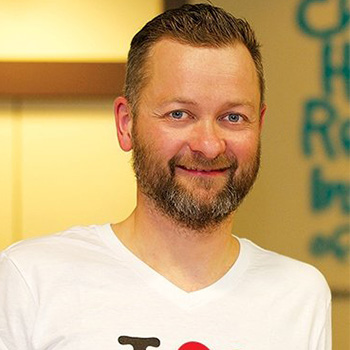
On a daily basis, adolescents with type 1 diabetes face challenges related to monitoring and managing their blood glucose levels during a critical stage of their development (which can have a negative effect on both their quality of life and mental health). Dr. Jonathan McGavock, from the University of Manitoba, is leading a research program that's focused on determining whether exercise can reduce stress and anxiety and improve quality life among adolescents who have type 1 diabetes. These adolescents, aged 13 and 17, are being invited to participate in a 12-week intervention led by young adult peer mentors who live an active lifestyle. The trial will determine if an intervention guided by the lived experiences of young adults living with type 1 diabetes can help adolescents adopt a more active lifestyle and overcome the mental health challenges associated with diabetes self-management. The results could then lead to new person-centred clinical treatments that may help adolescents living with type 1 diabetes be more active and improve their quality of life. Further reading |
Working Towards a Healthier Canada: The Benefits of Microbiome ResearchScientists investigate gut bacterium beneficial to human health 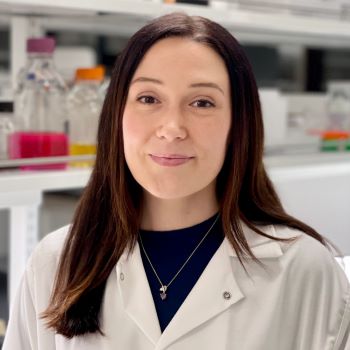
Research suggests that the intestinal bacterium Akkermansia muciniphila can protect against diet-induced obesity and neurological disorders, as well as improve patient response to cancer treatment. But despite the exciting links between this microbe and health, scientists still know very little about it, and there are no other closely related microbes that colonize humans. Dr. Lauren Davey, Assistant Professor in Biochemistry and Microbiology at the University of Victoria, studies Akkermansia muciniphila. Recognizing that this gut microbe has great therapeutic potential, Dr. Davey and her team are investigating the unknowns surrounding Akkermansia, including how it interacts with the human host and other members of the microbiome. "Basic research in the microbiome field, with a focus on specific microbes and their activities in the gut, is essential to enabling us to make use of the microbiome to improve human health," says Dr. Davey. Dr. Davey and her team are exploring Akkermansia biology and expanding the genetic toolbox for Akkermansia research. Their work aims to increase our understanding of what Akkermansia is doing in the gut and find ways to harness its beneficial properties, for example through genetic engineering. Ultimately, Dr. Davey hopes to contribute to the development of safe and effective Akkermansia-based probiotics that possess the ability to improve metabolic health and longevity. Further reading |
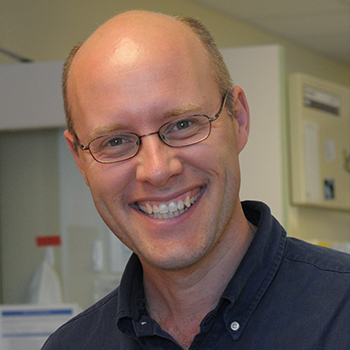
Identifying research questions that matter most to pediatric inflammatory bowel disease (IBD) patientsPatients and family members have important suggestions to add to clinicians’ ideas Dr. Anthony Otley (MD, FRCPC, MSc) Like for many diseases, the research agenda in studying pediatric IBD has been traditionally driven by researchers and industry. This may cause us to miss key research questions that matter more to our patients, their families, and clinicians involved in the care of this patient population. Establishing research priorities will set the stage for the larger goal of creating a sustainable patient engagement agenda across our Canadian Children IBD Network. Using an established research process developed by the James Lind Alliance (JLA), we sought to identify these unanswered questions with input from patients, families, physicians, allied health professionals, and representatives from relevant national organizations. We gathered thousands of questions from the public through a national survey, and prioritized them based on importance. The results of this study helped identify our top 10 research priorities, as well as the top 3 questions already answered by research. To share these findings, Dr. Otley teamed up with talented animators to create videos that could be widely shared. Dr. Otley’s video won a special commendation in the 2022 IHDCYH Talks video competition. Visit the IHDCYH Talks YouTube channel to watch all the submissions. Learn more about the annual IHDCYH Talks video competition. Further reading
|

Capturing the Patient’s VoiceTransforming Care through the Integration of Patient-Reported Outcome Measures into Clinical Practice Dr. Samantha J. Anthony The overarching goal of the Anthony Lab is to examine the biopsychosocial impact of pediatric chronic illness, specifically solid organ transplantation, on patients and their families to improve health outcomes by transforming clinical practice through research. This goal is achieved by:
Patient-reported outcome measures (PROMs) are tools used to collect data about the subjective assessment of medical care from the patient perspective. As health services shift towards more patient-centered care, the importance of PROMs is increasingly recognized. Dr. Anthony and her collaborators created an electronic platform called Voxe to introduce PROMs into routine clinical practice. The final version of Voxe is the outcome of evidence-based research, involving rounds of design and usability testing, as well as interviews with pediatric patients and their healthcare providers. By transforming how care is delivered, Voxe innovatively and creatively captures and embraces patient voices. This video won first place in the 2022 IHDCYH Talks video competition. Visit the IHDCYH Talks YouTube channel to watch all the submissions. Learn more about the annual IHDCYH Talks video competition. Further reading |
Septic shock is a serious danger in the ICU, but stem cells therapy offers hope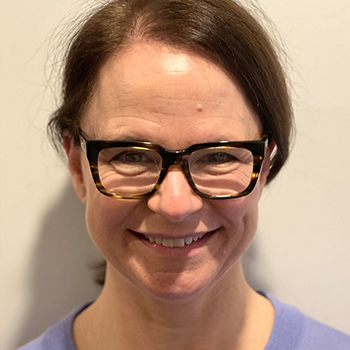
Septic shock is one of the most severe infections seen in the intensive care unit, with one in 18 deaths in Canada involving sepsis, and 11 million sepsis-related death reported worldwide each year. It is characterized by cardiovascular collapse and organ failure, with a high mortality rate that no therapeutic treatment has so far improved. Now, Dr. Lauralyn McIntyre, a critical care doctor at The Ottawa Hospital, is leading a phase II clinical trial to test whether umbilical cord stem cells will reduce the need for organ support while a septic shock patient is in the ICU. Interest in stem cell therapy is steadily growing, because mesenchymal stem cells (MSCs)—which can be easily grown in a lab—are able to differentiate into any specific cell, and therefore have a wide range of therapeutic uses. Mostly, through communication with other cells in the body, stem cells help to repair tissues and decrease inflammation through their interactions with the immune system. Dr. McIntyre leads a multidisciplinary team of sepsis experts, trialists, trainees, stem cell manufacturing experts, and patient and family partners, many of whom collaborated on the first phase of this trial. The collaboration between senior and junior researchers and patients is one of the most rewarding things about the trial, according to Dr. McIntyre. Of course, she is most excited about the promise of umbilical cord stem cells for the treatment of septic shock. If successful, this phase II trial will help secure international and business partnerships, making stem cell treatment viable for all septic shock patients. |
Predicting neurodegenerative diseases and cognitive decline in seniors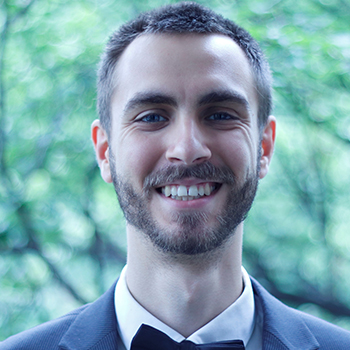
Alzheimer’s is a disease that is defined by the damage it does to the brain, rather than by its symptoms. It is suspected that the brain starts breaking down many years before a person with Alzheimer's begins to lose their cognitive functions. This means that cognitive decline could be predicted by detecting Alzheimer's and measuring the progression of the neurodegenerative disease associated with it. Vanier Scholar Étienne Aumont from Université du Québec à Montréal is working to confirm this hypothesis by using neuroimaging to measure different regions of the hippocampus. Étienne will use annual monitoring data collected on 300 seniors in the TRIAD (Translational Biomarkers in Aging and Dementia) cohort to understand whether markers of Alzheimer’s can predict neurodegenerative disease, and if the disease can lead to memory loss. In addition to Étienne’s research work, he also founded Sciences 101, an organization that encourages students to acquire science communication skills in 2019. Through this organization, he also founded the science outreach magazine la FIBRE, organized a science outreach competition, and developed a great number of training workshops for the student community. Further reading |
A precision approach to mechanical ventilation might improve the health outcomes of respiratory failure patients
Acute respiratory failure affects tens of thousands of Canadians every year, with its most severe form being Acute Respiratory Distress Syndrome (ARDS), which is a very frequent cause of admission to intensive care units. ARDS has a mortality rate of 30 to 40%, so it is imperative that researchers improve the disease’s prognosis. That’s where Dr. Laurent Brochard of Unity Health Toronto comes in, with his Clinical Trials Fund-supported CAVIARDS—Careful Ventilation in Acute Respiratory Distress Syndrome—trial. Brochard’s lab will test the hypothesis that a personalized delivery of mechanical ventilation based on patient’s measurements at the bedside can improve survival and reduce the duration of mechanical ventilation. If this hypothesis is correct, personalized delivery of mechanical ventilation will increase survival rates and mitigate other long-term effects of ventilation, such as lung and brain damage. Critical care medicine seeks to improve the survival rate and the quality of life for patients staying in ICUs. The international CAVIARDS trial aims to do the same, helping more patients recover faster from respiratory failure. And although clinical trials are designed to primarily benefit future patients, many are associated with excellent quality of care for the patients in the trial. For people with respiratory failure, the benefits of better mechanical ventilation might start before the trial even concludes. Further reading |
Expanding our knowledge of treating bloodstream infections to improve health outcomes
Each year, more than 10,000 Canadians become infected with a Staphylococcus aureus bloodstream infection. This disease can result in severe sepsis, spread infection to other parts of the body, and even result in death – and unfortunately, it’s one of the most common serious bacterial infections in the world. While antibiotic treatments are available, infectious disease doctors are frequently faced with challenging cases involving this type of infection and many questions remain on how to treat them most effectively. The S. aureus Network Adaptive Platform (SNAP) is an international trial that is evaluating multiple treatment strategies to improve health outcomes for patients with this disease. Dr. Todd C. Lee and the SNAP team are now taking this network’s objective one step further. Through a new clinical trial project called “Expanding the Staphylococcus Aureus Network Adaptive Platform,” he is examining new approaches to treating this type of infection. First, Dr. Lee’s team is evaluating if a combination of cefazolin and ertapenem is effective against methicillin-sensitive infections, the most common type of Staphylococcus aureus bloodstream infection. Second, the researchers are comparing the benefits of two other antibiotics currently used to treat methicillin-resistant strains. Finally, the team is evaluating how an old tuberculosis drug, rifampin, may or may not be necessary to treat infections involving prosthetic heart valves. Researchers from Australia, Canada, Israel, New Zealand, Singapore, and the UK are involved in this new project. Dr. Lee’s new trial represents an addition to the largest international collaborative effort in better understanding the treatment of this lethal disease. Dr. Lee is hopeful that, over the next decade, it will lead to numerous innovations in patient care and generate actionable evidence to inform future care and treatments. Further reading |
Small steps for big changesImplementing an evidence-based diabetes prevention program in diverse urban communities 
Dr. Mary Jung is an Associate Professor in the School of Health and Exercise Sciences at the University of British Columbia (UBC), Okanagan Campus. Dr. Jung aims to develop evidence-based diabetes prevention interventions designed for community implementation and sustainability while improving equity, diversity, and inclusivity in all research endeavours. She was named a Michael Smith Foundation for Health Research Scholar in 2015, and Killam Accelerator Research Fellow in 2023. Dr. Jung leads the Diabetes Prevention Research Group, is the founder of the diabetes prevention program “Small Steps for Big Changes” and is director of UBC’s Centre for Health Behaviour Change. Dr. Jung is the Nominated Principal Investigator for a CIHR Healthy Cities Implementation Science Team Grant titled: Small Steps for Big Changes: Implementing an Evidence-Based Diabetes Prevention Program into Diverse Urban Communities. This research will test the implementation, effectiveness, and sustainability of a diabetes prevention program in urban communities in Canada and Australia where rates of type two diabetes are high and diabetes prevention programs remain inaccessible. Further reading |
Training Canada’s next generation of clinical research professionals
The COVID-19 pandemic has exposed critical gaps across our public institutions and in our pharmaceutical and biotechnology industries. It has become clear that Canada requires a well-coordinated training, skills development, and mentorship program to improve the design and implementation of clinical trials. The CANadian consortium of clinical trial TRAINing platform (CANTRAIN) may be the answer to building capacity in our clinical trials ecosystem. CANTRAIN is a national clinical trial training platform led by Dr. Jean Bourbeau, Senior Scientist with the Centre for Outcomes Research and Evaluation at the Research Institute of the McGill University Health Centre. The CANTRAIN team comprises 95 researchers from 14 institutions across 9 provinces, who are collaborating with public and private partners. How will the rollout of CANTRAIN training platform help attract and develop highly qualified clinical researchers and scientists in Canada? Dr. Bourbeau’s team has identified solutions to advance the professional development of clinical research professionals across Canada. Some of the e-learning solutions available through the platform include competency-based training with certification, mentoring, experiential learning, internships, and networking programs. The CANTRAIN platform will offer several training streams such as trial operations, design and analysis, and partnership development. It will also ensure Canada remains competitive with high standard clinical research. But that’s not the only impact of this national training platform. Having highly qualified personnel to run clinical trials more effectively also means better health outcomes for everyone in Canada. CANTRAIN is one of seven training platforms supported by the Clinical Trials Fund. These collaborative initiatives will train the next generation of clinical research professionals in such specialties as biostatistics, stroke research, behavioural change, and the general practice of clinical research. Further reading |
An arthritis treatment may bring health benefits to people with mucopolysaccharidoses
Mucopolysaccharidoses are a group of rare diseases estimated to affect one in 25,000 births. People with these rare diseases are born without an enzyme responsible for breaking down complex carbohydrates called glycosaminoglycans. Over time, glycosaminoglycans build up in the body causing inflammation, joint pain and stiffness, skeletal abnormalities and, in some cases, cognitive disabilities. Current treatments have improved life expectancy for people with mucopolysaccharidoses. As a pediatric biochemical geneticist, Dr. John James Mitchell has worked with children with rare genetic diseases for over 20 years. He has always been amazed by the resilience of the patients and their families in the face of challenges that diseases such as mucopolysaccharidoses can bring. Dr. Mitchell is now looking for additional therapies that can continue supporting their journey. One promising therapy may be a medication called adalimumab. Results from a clinical trial in the United States show that the treatment reduces pain and inflammation in patients with arthritis. Early studies and anecdotal information suggest that adalimumab may offer similar benefits to people with mucopolysaccharidoses. Dr. Mitchell’s randomized clinical trial titled “The Safety and Efficacy of Adalimumab for Pain Reduction in Individuals with Mucopolysaccharidoses” will provide answers about the safety and benefits of adalimumab as a potential treatment for mucopolysaccharidoses types I, II, IVA and VI. His team is evaluating how the drug impacts patient experience with pain, life quality, joint range of motion, and other variables. Dr. Mitchell is hopeful that adalimumab treatment will reduce pain and inflammation and, as a result, improve the quality of life of those living with mucopolysaccharidoses. A Canada-based clinical trial will also ensure that Canadians have access to the treatment after approval. Further reading |
New targeted therapy offers hopes for treatment of arrhythmogenic right ventricular cardiomyopathy, a genetic heart condition
Arrhythmogenic Right Ventricular Cardiomyopathy (ARVC) is a genetic heart disorder that often shows no symptoms before sudden cardiac arrest, even in young and otherwise healthy patients. Reports of young athletes’ sudden deaths on the playing field or rink are often caused by ARVC, and there is a subtype so common in Newfoundland that it is called the “Newfoundland curse.” Currently, there are no effective medical therapies for ARVC. The only reliable intervention to prevent sudden death is the insertion of an implantable cardioverter-defibrillator; however, shocks from the device can be painful and traumatic. Furthermore, this device means limitations on the patient’s lifestyle, such as avoiding physical activity that accelerates the progression of the disease. But a new study, the TaRGET trial, led by Dr. Jason Robert, a scientist at McMaster University’s Population Health Research Institute and a genetic arrythmia specialist, is evaluating a promising new therapy for this genetic heart condition, the small-molecule drug tideglusib. Dr. Roberts and his team of collaborators have found that tideglusib is able to prevent the development of ARVC in mice and can also partially reverse the disease. With the backing of the Clinical Trials Fund, Dr. Roberts and his team are now exploring tideglusib’s potential in clinical trials. A treatment that reduces the need for insertion of defibrillators and enables affected individuals to live without lifestyle restrictions and device-related complications could be game changing for ARVC patients. In Canada, there is already a national network—the Hearts in Rhythm Organization— whose goal is to improve the care of ARVC patients. The network and its collaborators across the country will be involved in the TaRGET trial. Equally important, TaRGET will be conducted through the Population Health Research Institute at McMaster University and Hamilton Health Sciences, which has previously conducted pivotal clinical trials for medicines in cardiology. Dr. Roberts is hopeful that advances in therapy will dramatically improve the lives of patients with genetic cardiac disorders. Further reading |

Adapting the Attachment and Child Health (ATTACH™) approach for broader availabilityAn App to Promote Healthy Parent-Child Relationships and Children’s Mental Health and Development Dr. Nicole Letourneau & ATTACH™ Team ATTACH™ is an evidence-based, psychoeducational parenting program designed to help parents affected by adversity, such as family violence, depression and low-income, promote the mental health and development of their preschool-aged children. The Harvard Center on the Developing Child named ATTACH™ a prestigious Frontiers of Innovation project. ATTACH™ was singled out for its ground-breaking impacts on children’s mental health and development by building parents’ reflective function (i.e. insight into their own and their children’s thoughts and feelings). ATTACH™ also improves children’s attachment security and children’s immune cell gene expression linked to inflammation. Following a successful pilot test, we propose to test, scale, and spread the ATTACH™ Online App across Alberta with 10 agencies, including eight women’s shelters serving mothers and children affected by family violence, an agency serving parents and children affected by mental health problems, and an agency serving low-income teen mothers and their infants. Further reading |

Breaking the Cycle: Evaluating and Implementing an Early Intervention Program for Children Exposed to AdversityA program to support mother-child relationships for mothers who use substances Dr. Nicole Racine One in three Canadian children is exposed to adverse childhood experiences (ACEs), including abuse, neglect, and family violence. During early childhood, when the foundation for lifelong mental health is established, exposure to ACEs is particularly harmful. Breaking the Cycle (BTC) is an award-winning program that serves substance-using mothers and their young children who are at risk for exposure to ACEs. BTC is a one-of-a-kind program in Canada for substance-using mothers that specifically targets the mental health of young children and the mother-child relationship. Co-led by Dr. Debra Pepler and Margaret Leslie, this team grant aims to understand whether the BTC program enhances mental health outcomes for young children, and whether it is associated with long-term cost savings. The team will also identify strategies for scaling and implementing the Breaking the Cycle program in other communities. This project will position Canada as an international leader in infant mental health and improve mental health outcomes for children exposed to ACEs. Further reading |

It takes a village to raise a childCapacity-building to improve mental health outcomes in Canada’s youngest children Dr. James N. Reynolds Canada lacks a systematic approach to supporting the mental health needs of young children and their families. Healthcare practitioners often fail to recognize vulnerability in young children because they do not know what to look for, and families struggle to access early mental health support for their children. Consequently, early developmental risks that go unidentified can solidify into behavioural challenges and adverse mental health outcomes in later years that will require significantly more effort from the child, their family and available community services to address. Decades of work led by Infant and Early Mental Health Promotion (IEMHP) and its partners have engaged organizations from multiple sectors along with community leaders and families in building the capacity to better address Infant and Early Mental Health (IEMH) concerns. Our proposed research will leverage a community intervention called the Infant and Early Mental Health Care Pathways Intervention. IEMHP has developed a community-led, capacity-building model for embedding IEMH into current health, education and social services. This proposal will test the hypothesis that implementing this model and its associated assessment tools will enhance, create and even expand IEMH promotion, prevention and treatment services within communities. Further reading
|
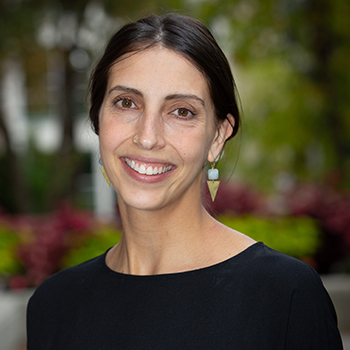
Promoting dual-generation mental health through a hybrid eHealth & community-based interventionImplementing the BEAM (Building Emotional Awareness and Mental Well-Being) App-based Program with a network of community agencies to treat parent mental illness, build social supports, and prevent child mental health and developmental challenges. Dr. Leslie E. Roos Untreated mental illness in a parent can impact young children by exposing them to stressful events including violence or relationship disruptions. Dr. Roos and her team have created an app-based program called BEAM (Building Emotional Awareness and Mental Well-Being) to support family mental health by providing educational videos, group checks-in, support forums, and mental-health symptom tracking. BEAM is designed to improve the well-being of a generation of children born during a global pandemic to highly stressed parents. Research so far shows that BEAM has great promise in helping parents overcome challenges and improve parent-child relationships. We expect that BEAM will be able to prevent child mental health problems and developmental impairments when rolled -out in the community. This will be tested in a pragmatic clinical trial in which BEAM will be co-delivered by Family Dynamics, a large community organization based in Winnipeg. Dr. Roos and her team will track program roll-out and measure BEAM’s success at preventing harsh parenting and improving child health, development, and school-readiness. This partnership model establishes a strategy for wide-scale delivery of BEAM across Canada in a way that is accessible to those that need it most. Dr. Roos is excited to help children and families thrive in the recovery from the pandemic and beyond. Further reading |

Developing Culturally Grounded Methods for Understanding Indigenous Children's Mental HealthDr. Melissa Tremblay For Indigenous (i.e., First Nations, Metis, and Inuit) children in Canada, the need for early childhood investment is pronounced. Nurturing the healthy development of Indigenous children is complex, requiring the weaving together of community-led innovation and scientific research, as well as the fundamental recognition that Indigenous peoples and communities have the knowledge that is needed to improve the health status of their own children. Moreover, successful implementation of early childhood programming requires assessment, screening, and evaluation tools that are grounded in community and cultural understandings of mental health. This project builds on a partnership between the Early Years Program and academic researchers. Early Years Programming has been co-created by the Martin Family Initiative alongside Indigenous communities across Canada with the intent of unleashing the potential that all children are born with. Working in partnership with Early Years programming in Alberta, the Yukon, and Nunavut, the objectives of this project are twofold: (1) to examine factors associated with successful implementation of Early Years programming in Indigenous communities, to help lay the foundation for early childhood mental health; and (2) to co-create tools to evaluate early childhood program implementation in ways that centralize Indigenous community priorities related to early childhood mental health. Further reading |
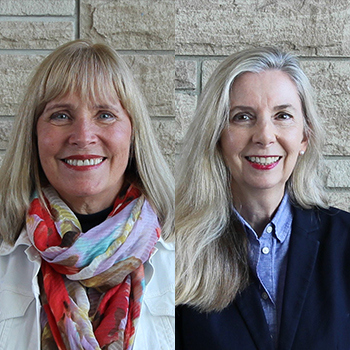
Promoting the Mental Health of our Youngest CanadiansKnowledge Development and Exchange Hub for Mental Health in the Early Years Dr. Alice Schmidt Hanbidge Dr. Colleen McMillian Researchers continue to learn how critical the first five years of life are to positive mental health throughout the life span. Mental health can be improved over the long-term by working with families, communities, and governments to ensure the best possible conditions in the early years. More research is needed, however, in areas such as how to support children from various cultures, geographic locations and contexts. CIHR is funding implementation science research across Canada through the Mental Health in the Early Years (MHITEY) program. The Knowledge Development and Exchange Hub (KDE Hub) exists to support mental health promotion and mental illness prevention projects. The KDE Hub will work with MHITEY researchers to share new learnings with families, communities, caregivers, program providers, fellow researchers and government. The Hub will support the MHITEY research teams to learn together and connect them with others who share their interests, generating new learning across research teams. Through the Hub’s support, we can amplify the work of the MHITEY research projects and make a difference in the mental health of our youngest Canadians, both now and in the future. Further reading
|
Dr. Hawkes takes the first step towards a Strep A vaccine to prevent serious illness in children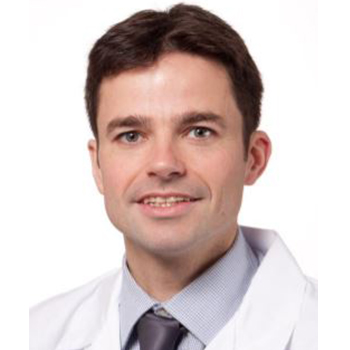
Strep throat is not a rare ailment in children, but it can quickly become severe enough to require hospitalization. Dr. Michael Hawkes at the University of Alberta is a pediatric infectious disease physician who has seen many cases of life-threatening Streptococcus A (Streptococcus pyogenes). Dr. Hawkes and his team are launching a phase 1 study in healthy volunteers testing the safety and immune response of two new Strep A vaccines, based on peptides (small proteins) that generate antibodies to fight Strep A. Without proper treatment—and there is currently no available vaccine to prevent the illness—Strep A can turn into rheumatic fever, bloodstream infections, and flesh-eating disease. Evidently, a Strep A vaccine could avert serious disease in Canadian children; and around the globe, rheumatic fever is a major cause of heart disability, meaning that prevention is an important public health goal that reaches beyond Canada’s borders. The first phase of this trial will involve 30 healthy volunteers. Once safety and usefulness are established, future studies will follow. Dr. Hawkes’s ultimate goal is a vaccine that can be widely used to prevent Strep A in children. Further reading |
Can we avoid esophagectomy in patients with esophageal squamous cell carcinoma?Improving quality of life following treatment for esophageal cancer 
The esophagus is the hollow, muscular tube that carries food and liquids from the throat to the stomach. Like other tissues, organs, or structures in the body, the esophagus is a site where cancer can develop. In fact, esophageal cancer is the 7th most common cancer and 6th most common cause of cancer death. Esophageal squamous cell carcinoma represents 90% of cases globally. Curative intent treatment where cancer specialists aim to get rid of the cancer for good is controversial. Patients are usually treated with a combination of chemotherapy and radiotherapy followed by an esophagectomy, a surgical procedure in which all or part of the esophagus is removed. Esophagectomy has a negative impact on quality of life and existing scientific evidence has not resolved whether it is truly necessary. Dr. Jelena Lukovic is a radiation oncologist at the University Health Network’s Princess Margaret Cancer Centre and Assistant Professor at University of Toronto. Dr. Lukovic is a member of the team leading the NEEDS trial, an international randomized trial that seeks to compare outcomes after chemotherapy and radiotherapy followed by surgery with definitive chemotherapy and radiotherapy with surveillance and, if necessary, surgery to remove the remaining parts of a tumour, known as “salvage esophagectomy”. The trial also aims to determine if health-related quality of life is superior by avoiding esophagectomy in a proportion of patients. Dr. Lukovic and her colleagues anticipate that the results will be highly cited and form the basis of national and international treatment guidelines for esophageal squamous cell carcinoma. Further reading |
Can we better treat acute pain in children?Clinical researcher at McMaster University conducts clinical trial to determine whether a non-opioid medication can reduce pain as effectively as morphine with fewer side effects in children with appendicitis 
Appendicitis is a common condition among Canadian children that often leads to emergency surgery. Children with appendicitis can experience severe abdominal pain, which makes pain management crucial. Opioids such as morphine are often prescribed but taking them carries serious risks and side effects. Dr. Mohamed Eltorki, an Assistant Professor of Pediatrics and Pediatric Emergency Medicine at McMaster University, and his colleagues are studying whether a non-opioid medication called ketorolac is as effective as morphine in treating children with appendicitis. Ketorolac is known to help decrease inflammation and pain with fewer side effects. The team is conducting a multi-centre randomized controlled trial that will involve 600 patients from hospitals across Canada. Study participants will receive either a single dose of morphine or ketorolac based on the flip of a coin. Dr. Eltorki hopes this study will provide evidence for families and practitioners to guide their use of effective pain medicines in children. Further reading
|
Precision medicine for the other ovarian cancersMolecular features of endometriosis-associated cancer can be used to re-classify ovarian cancers and direct management 
The best way to understand endometriosis-associated cancers is to better understand their origins from endometriosis and cells in the endometrium. This is a unique group of cancers that does not follow the same evolution, responses to treatment, or hereditary risk factors as more common high-grade serous ovarian cancers. Dr. Michael Anglesio, an Assistant Professor at the University of British Columbia, and his team work closely with endometriosis clinicians to learn more about how endometriosis develops and progresses as a chronic disease with malignant potential. His group is one of a few groups to study endometriosis at a genetic level and the first to describe cancer-like mutations in this condition – even when it doesn’t turn into cancer. Dr. Anglesio is a leader in a global team working together to build a resource of endometriosis-associated ovarian carcinoma samples that will help to understand how these cancers evolve. His team has already defined four subtypes that are nearly identical to cancers in the endometrium. This discovery may soon change treatment for endometriosis-associated cancers, including reducing toxic chemotherapies for many of them. While endometriosis-associated cancers are considered rare, endometriosis is not. Almost 10% of individuals with a uterus may be affected by endometriosis and are at elevated risk for these cancers. By looking at both cancer and pre-cancers, Dr. Anglesio hopes to bring benefits to both individuals affected by endometriosis and those affected by related malignancies. Further reading
|
Yes, doctors keep your surgery wounds clean. But the best solution—iodine or saline—is a hotly debated question.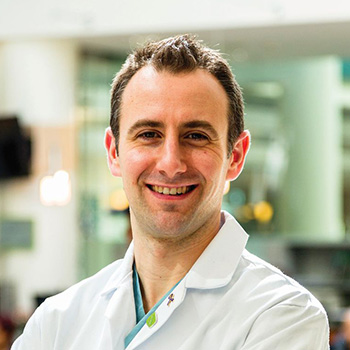
You might think that washing out a surgical incision is obvious, but there is some variability within Canada—and even within institutions—about when and how you should wash wounds, and with what fluid. Dr. Paul Karanicolas’ trial will examine whether irrigating (washing) surgical incisions can reduce the chances of a surgical site infection. These infections are a burden on patients and the healthcare system, resulting in additional health problems and longer hospital stays, but this simple and inexpensive intervention will likely improve patient outcomes. Called the CLEAN Wound trial, Dr. Karanicolas will compare a povidone-iodine solution (an antiseptic) and a saline solution with no wound irrigation, and measure the results after 30 days. With this new funding from the Clinical Trials Fund, the CLEAN Wound trial will be rolled out in eight community and academic centres across Ontario. Dr. Karanicolas is hopeful that his trial will resolve the uncertainty around irrigating surgical site infections, thus leading to a better standard of care for all patients in Canada and worldwide. |
We can’t fix what we don’t understandUniversity of Toronto researcher aims to understand how structure-selective DNA endonucleases recognize and cleave DNA as a potential therapeutic target for cancer 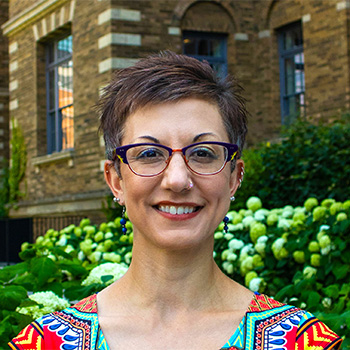
The Achilles heel of cancer cells lies in identifying a characteristic weakness or vulnerability that these abnormal cells possess, which can be targeted and exploited for the purpose of treating cancer. One such characteristic is uncontrolled cell proliferation and growth, which leads to an increased amount of DNA damage due to errors during replication, exposure to harmful compounds, and oxidative stress. While normal cells can repair or remove damaged DNA, cancer cells often acquire mutations in genes that regulate this process, leading to an accumulation of DNA damage, abnormal DNA structures, and genomic instability. With the support of a CIHR Project Grant, Dr. Haley Wyatt at the University of Toronto is studying how structure-selective endonucleases recognize and cleave aberrant DNA structures to safeguard genome integrity. Her experimental approaches are highly complementary and include biochemistry, structural biology, and molecular biology. Dr. Wyatt’s fundamental research may ultimately identify regions of structure-selective endonucleases that are amenable to therapeutic intervention. Further reading |
Building on mutual support!A Vanier Scholar at Laval University has partnered with a community organization to explore how the community and people living in supervised apartments can mutually support one another 
An increasing number of organizations are establishing supervised apartments to better meet the housing needs of autistic people with intellectual and/or physical disabilities. However, the organizations are grappling with a number of questions: How to create an environment that adequately supports tenants’ independence? And how to foster tenants’ participation in their own community? Unfortunately, the scientific literature lacks the information needed to answer these important questions. The community partner organization in this project shares these concerns. Through meetings with those involved in this organization, we came up with the idea of developing a mutual support network between the tenants who will live in the supervised apartments, as well as between the tenants and other community members. To identify the key elements that need to be brought together to ensure that the mutual support network meets the needs of the various actors involved and is sustainable over time, community members and tenants are invited to share their ideas in a community forum and one on-one interviews. In addition to contributing to advancing knowledge, this research will inform the partner organization and others developing similar residential projects about the development of sustainable mutual support networks between autistic tenants with intellectual or physical disabilities and the other community members. The project will thus help with the creation of residential and community environments where these people can maximize their potential. Further reading |
Breathing machines are uncomfortable for patients. Can a sedative already used in intubation help make breathing machines tolerable for more patients?
Before patients with respiratory failure are intubated or connected to a mechanical ventilator, most are connected to a breathing machine called non-invasive ventilation (NIV). This form of ventilation (similar to a machine for sleep apnea but stronger) means that the patient does not have to have a breathing tube inserted and be placed into a medically induced coma to allow the lungs to recover. It is less invasive, reduces the length of intensive care stays, and reduces the risk of pneumonia. But while NIV is preferable to mechanical ventilation, it is not all sunshine. Non-invasive ventilation can be quite uncomfortable— the mask is very tight-fitting, and the machine delivers a high pressure of air. Some patients simply cannot tolerate NIV, meaning they must be moved on to a mechanical ventilator. But Dr. Kim Lewis, a critical care physician at McMaster University, may have a solution: a medication called dexmedetomidine, already used in intubation, can calm the patient down, provide pain relief, and treat underlying delirium. Dr. Lewis is hoping that her blinded randomized clinical trial will demonstrate that the sedative dexmedetomidine, compared to a placebo, will help patients tolerate NIV, and therefore help to prevent the need for intubation and mechanical ventilation. This trial came out of the COVID-19 pandemic when Dr. Lewis was intubating many patients with respiratory failure. She knew she had to find a solution. If dexmedetomidine is found to help patients, it will keep more people off mechanical ventilators, making hospital stays shorter and more agreeable. Further reading |
Stopping the spread of lung cancerVanier Scholar at the University of Manitoba focuses on how cells recycle their mitochondria as a novel approach to preventing metastasis in lung cancer 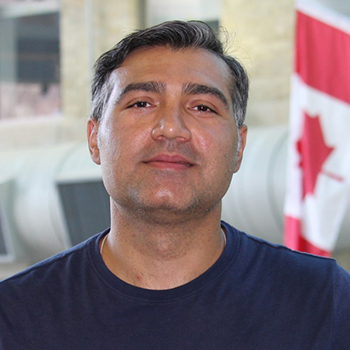
Lung cancer is the most commonly diagnosed cancer and the leading cause of cancer death in Canada. In fact, more Canadians die of lung cancer than colorectal, pancreatic and breast cancers combined. Metastasis, or the spread of the cancer to other parts of the body, is the major cause of death among lung cancer patients. Javad Alizadeh, a Vanier Scholar and PhD candidate at the University of Manitoba, is focused on finding ways to prevent metastasis of lung cancer cells to other tissues. His research so far has shown that a specific protein located on mitochondria appears to play a crucial role in the migration and metastasis of lung cancer cells to other organs. These findings could hopefully contribute to the development of new approaches to decrease the metastasis of lung cancer, thereby significantly increasing the life expectancy of Canadian patients diagnosed with lung cancer. Further reading |
From H1N1 to COVID-19, this collaborative critical care network shows how to run trials during a pandemic
Dr. John Marshall has been running trials in pandemic preparedness since the H1N1 outbreak in 2009, under the umbrella of the Randomized Embedded Multifactorial Adaptive Platform trial in Community-Acquired Pneumonia (REMAP-CAP). Once COVID-19 was declared an outbreak, Dr. Marshall’s multinational trial shifted its focus to evaluating treatments for severe COVID-19. Dr. Marshall has long been an advocate for collaborative, multi-institute clinical research. He chaired the Canadian Critical Care Trials Group from 2005 to 2012, which gave him a greater appreciation for collaborative research. In 2008, similar trial networks from around the world formed a loose alliance, the Forum for Acute Care Trialists. These existing networks were instrumental in dealing with the COVID-19 pandemic, and H1N1 before it. REMAP-CAP is a platform for global collaborative research. To date, the trial has recruited over 10,000 patients with COVID-19, and the trial has established the benefits of treatment using corticosteroids, IL-6 receptor antagonists, and antiplatelet agents, as well as the harms of hydroxychloroquine. The results from these trials have been incorporated into WHO guidelines and changed the way that clinicians manage severe COVID-19. REMAP-CAP’s renewed funding comes from the Centre for Research on Pandemic Preparedness and Health Emergencies. This funding is as much financial assistance moving forward as it is a recognition of the accomplishments that Dr. Marshall’s team has already achieved in pandemic preparedness. Further reading |
Leveraging biological sex and genetics for beta cell-directed precision medicine in type 1 diabetes 
Dr. Rideout is an Associate Professor in the Department of Cellular and Physiological Sciences at The University of British Columbia. She currently holds a CIHR Sex and Gender Science Chair in Genetics, and was named a Michael Smith Foundation for Health Research Scholar in 2017. Dr. Rideout’s research program is focused on identifying metabolic genes and pathways that contribute to sex differences in metabolism and metabolic disease. One major area of research in Dr. Rideout’s lab concerns sex differences in insulin production under normal conditions and during stress using fly, rodent and human models. Dr. Rideout is the Nominated Principal Investigator for a CIHR – Juvenile Diabetes Research Foundation (JDRF) team grant competition entitled ‘Type 1 Diabetes and Precision Medicine’. Using human islets and mice, Dr. Rideout’s lab works with the labs of Drs. James Johnson, Bruce Verchere, Peter Thompson and Dan Luciani to define how sex and genetics influence insulin throughout all stages of its production and release in the context of type 1 diabetes (T1D) pathogenesis. This team will determine how insulin synthesis, processing and quality-control mechanisms are disrupted in each sex in people living with T1D. The team will also test how modulating key steps of insulin’s production affects beta cell function and diabetes progression in the gold standard mouse model of T1D. These studies will allow the team to determine which steps are disrupted in T1D, and whether these changes can identify individuals at a high risk of developing diabetes. This knowledge will help the team test whether these steps can be therapeutically targeted to prevent and treat T1D. Because the team’s studies will use sex-based analysis for all their data, their studies will take an important step forward in developing sex-informed prevention and treatment strategies for type 1 diabetes. Further reading |
Empowering diverse youth with diabetes through precision medicine, ‘EVERYONE’ 
Farid Mahmud is an Endocrinologist and Associate Professor at the University of Toronto and Associate Scientist at The Hospital for Sick Children Research Institute. Dr. Mahmud's overall research focus is diabetes clinical research, relating to the early evaluation and prevention of diabetes-related complications and the impact of the social determinants of health on diabetes outcomes. He serves as lead investigator for multiple clinical trials including the Adolescent Diabetes Cardio-Renal Intervention Trial in Canada and the ATTEMPT (Adolescent Type 1 diabetes treatment with SGLT2i for hyperglycemia & hyperfiltration trial) innovative clinical trial funded as part of the CIHR Strategies for Patient Oriented Research. He also serves as a Global Editor for the 2022 International Society for Pediatric and Adolescent Diabetes Clinical Practice Consensus Guidelines that provide evidence-based recommendations for the assessment and treatment of children, adolescents, and young adults with diabetes worldwide. Dr. Mahmud is the Nominated Principal Investigator for the CIHR-JDRF Type 1 Diabetes and Precision Medicine team grant for his project entitled, “Empowering diverse youth with diabetes through precision medicine, ‘EVERYONE’.” The goal of this study is to create new knowledge on how differences in genes, environment, and social factors contribute to differences in type 1 diabetes management and develop ways to improve outcomes for all youth with type 1 diabetes. This research project will use a personalized approach to diabetes care at the Hospital for Sick Children and other regional practices. Further reading
|
Spatio-temporal dynamics of immune and non-immune islet injury in Type 1 Diabetes 
Dr. Thompson is an Assistant Professor in the Department of Physiology & Pathophysiology at The University of Manitoba and a Principal Investigator at the Children’s Hospital Research Institute of Manitoba. His recently established research program is focused on understanding Type 1 Diabetes (T1D) from the perspective of the insulin-producing beta cells and their complex interactions with the immune system. The long-term goal of his work is to develop new therapies that will protect beta cells for the prevention and cure of T1D. Dr. Thompson is the Nominated Principal Investigator for a CIHR – Juvenile Diabetes Research Foundation (JDRF) team grant competition entitled ‘Type 1 Diabetes and Precision Medicine’. His team, including Dr. Guy Rutter at Université de Montréal, Dr. Herbert Gaisano at University of Toronto and Dr. Pere Santamaria at University of Calgary and Diabetes Action Canada patient partners will investigate an intriguing theory to explain how and why T1D varies so much between people. The team will visualize how the autoimmune process develops and whether in it may exhibit selectivity for destroying key beta cell populations that act as master regulators of insulin output. This will be achieved by the application of an array of state-of-the-art genetic tools combined with prospective imaging in T1D mouse models and human T1D pancreas specimens to study the heterogeneity of the autoimmune process and its impacts on beta cells in real-time. They will also study how targeting beta cell stress programs reciprocally shapes the evolution of autoimmunity in T1D. Together, these studies are expected to support the development of new precision-guided treatments for T1D. Further reading
|
Decline, refuse, resist?Nurses’ understandings of dementia and the provision of unwanted personal hygiene care in acute care facilities 
For many of us with class, neurotypical, and able-body privilege, the bath has been an important site of relaxation and body modification; an experience marked by low lighting or aggressive callous rasping (or perhaps both) that sits at the intersection of pleasure and hygiene. But this is certainly not the experience of all who bathe. Clinicians and researchers have long recognized that bathing is one of the most challenging activities of daily living for people living with dementia. Challenges with executive functioning, motor processing and sensory changes contribute to the propensity of some people with dementia to self-neglect as their disease processes worsen and lead to the development of behavioral and psychological symptoms of dementia. As a Registered Nurse, Patricia Morris has experienced the incredible challenge of assisting clients with with unwanted bathing in providing residential dementia care. As a Vanier Scholar and PhD candidate at the University of New Brunswick, Patricia is carrying out research that explores nurses’ understandings of what they ought to do when a client’s body, clothing, or immediate environment are soiled but the person declines their assistance. Through focus group discussions stimulated by shared immersion in a virtual simulation, she is delving into the ways that nurses describe clients and their declinations of care. She is particularly interested in examining how acute care nurses navigate the complex task of providing (or declining to provide) personal hygiene care amidst a global pandemic that necessitates a hyper-fixation on cleanliness and infection prevention for the safety of other clients. Further reading
|
Naturally killing the deadliest ovarian cancersRedirecting our immune system's natural killer cells to treat high-grade serous cancer 
An ovarian cancer diagnosis shouldn't mean battling side effects for the rest of life or receiving a death sentence. But unfortunately for those diagnosed with high-grade serous cancer (HGSC), it often is. Sarah Nersesian is a Vanier Scholar, PhD candidate, and science communicator at Dalhousie University. She has dedicated her life to finding new therapies that effectively eliminate both HGSC and the harsh side effects of current treatments. Among new treatments, the most effective are proving to be immunotherapies, which enhance the immune system's response to cancer and lead to far fewer side effects than classical chemotherapies. Natural killer (NK) cells are a promising new candidate for immunotherapy. Appropriately named, NK cells are highly efficient killers; however, cancer is good at shutting their response down. To figure out how to best equip them to resist cancer suppression, Sarah is investigating the relationship between NK cells and HGSC. Working under the leadership of Dr. Jeanette Boudreau, Sarah and her labmates have so far have discovered that specific NK cells are better at predicting outcomes for HGSC patients than others. In the future, her research will inform the kinds of immunotherapy that scientists develop and hopefully will result in a new therapeutic option for HGSC patients in Canada. Further reading
|
Sexualized drug use among HIV-positive gay menExploring the impact of HIV status, mental health, and substance use on sexualized drug use practices 
Lauren Orser is a Vanier Scholar and PhD candidate in the School of Nursing at the University of Ottawa. Her research focuses on HIV-positive gay, bisexual, and other men who have sex with men (gbMSM) who engage in chemical sex, or chemsex, using amphetamine-class drugs (e.g., crystal methamphetamine) to facilitate sexual activity. Specifically, this research will examine the intersecting factors of HIV-related stress, mental health, substance use, and addiction. It will aim at understanding the factors related to engagement in chemsex and its effects on physical health, mental well-being, and risk-taking practices among HIV-positive gbMSM. The findings will expand current understandings about chemsex and will help researchers and clinicians address the complex and interrelated health effects of this sexual and substance using practice. Further reading |
Mapping the reproductive health needs and priorities of women living with HIVA Canadian study with global impact 
People are living longer, healthier lives with HIV compared to the early years of the epidemic. These advances have led to a shift in the reproductive health needs of people living with HIV, particularly women, who make up nearly a quarter of the people living with HIV in Canada and over half of the people living with HIV around the world. Lashanda Skerritt is a Vanier Scholar and MD/PhD candidate at McGill University. She is a member of the research team leading the Canadian HIV Women’s Sexual and Reproductive Health Cohort Study (CHIWOS). By engaging patients and communities living with HIV, Lashanda and the CHIWOS research team have found that women living with HIV in Canada have diverse and dynamic reproductive goals. However, only about a third of these women were comfortable discussing their reproductive goals with their health care providers. Using a visual concept mapping approach, Lashanda has mapped the health care priorities of a sample of women living with HIV in Canada. Her work has revealed that feeling safe and supported was the most central consideration in the satisfaction of women with their HIV care. It suggests that if we create environments where women living with HIV feel safe and comfortable discussing their reproductive goals, we can help ensure that care aligns with their goals and priorities. Further reading |
A ground-breaking gene therapy to improve health outcomes for patients with acute lymphoblastic leukemia
Chimeric antigen receptor (CAR-T) cell therapy is a treatment in which a patient’s T cells, a specific type of immune system cell, are isolated and modified to recognize and attack cancerous cells. This ground-breaking gene therapy is manufactured in a laboratory and then given to a patient by infusion. One of the CAR-T cell therapies currently available targets CD19, a protein found on the surface of B cell cancer. CD19 CAR-T cell therapies have promising results in the treatment of some types of leukemia and lymphoma. Despite this, only 30-50% of patients with acute lymphoblastic leukemia have a durable remission or cure after receiving CAR-T cell infusion. Dr. Kevin Hay believes that the key to improving the clinical outcomes of CAR-T cell therapies for these patients may lie in CAR-T cells designed to target a protein called CD22. Dr. Hay is co-leading the first Canadian research teams with the expertise and capability to test, manufacture, and distribute CD22 CAR-T cells right here in Canada. For now, thanks to research collaborations with lab facilities based at BC Canada, the Ottawa Hospital Research Institute, and the National Research Council’s Human Health Therapeutics Research Centre, Dr. Hay’s phase 1 clinical trial will evaluate the benefits of this novel therapy to determine a safe dose to treat children and adults with acute lymphoblastic leukemia, including those who have relapsed after receiving CD19 CAR-T cell therapy. The team is also looking at tumour and blood samples hoping to identify other proteins that can increase the benefits of CAR-T cells therapies against other types of cancer. Results from Dr. Hay’s study will provide the foundations for other trials and set the standards to approve CD22 CAR-T cell therapy in Canada, with the potential to make this ground-breaking gene therapy available to a larger number of cancer patients in the future. Further reading |
Seizing opportunities to prevent legal system involvement in mental health care trajectories
|
Transforming type 1 diabetes treatment
|
How can we best promote healthy growth among children?
|
Citizen-driven solutions to population health problems
|
Contributing to Hepatitis C Elimination
|
The role of sleep for the aging brain
|
Improving sedation methods and accelerating brain recovery for critically ill children
Many children admitted to pediatric intensive care units need sedation to support lifesaving therapies like mechanical ventilation. Unfortunately, these intravenous sedatives can cause delirium in more than half these children. Delirium is a brain disorder that presents as poor concentration, memory, and attention, and it can have devastating consequences such as longer hospital stays, reduced survival, and possible longer-term cognitive changes for the child. For families, visiting their child with delirium can be crushing as children may be too agitated to interact with the family or may not even recognize close family members. Thanks to a pilot clinical trial, Dr. Angela Jerath at the Sunnybrook Research Institute is exploring and testing alternative sedation methods. Her pilot project, called Advancing Brain Outcomes in pediatric critically ill patients sedated with Volatile AnEsthestic Agents, or ABOVE, is studying the safety and feasibility of inhalation-based sedation. Unlike intravenous sedatives, inhaled ones do not accumulate in the body and are rapidly eliminated through the lungs. Researchers believe that inhaled anesthetics may help get the child off mechanical ventilators sooner. This means reduced delirium and accelerated brain recovery. In addition, inhaled sedatives are more accessible since they are used safely every day in operating rooms. They are also cheap and widely available. Dr. Jerath has been working in sedation research for many years and, along with her research team, was motivated to put this project together after seeing how challenging it can be for critically ill children and their parents. The team comprises of leading experts in neurointensive care and pediatrics working in multiple intensive care units in Canada. They bring in the expertise and capacity needed to continue following children who were treated with inhaled sedatives for one year and to study the neurocognitive outcomes. The team is hopeful that inhaled sedation will provide clinicians and families with new drug options that offer better quality of sleep for these child patients with fewer neurocognitive side effects. Further reading
|
Re-evaluating current treatment for bleeding complications in intensive care
The development of stomach ulcers is a rare complication faced by critically ill patients on life support in the Intensive Care Unit (ICU), especially by those who require breathing machines. To prevent gastrointestinal bleeding from these ulcers, ICU doctors often administer pantoprazole, a drug that reduces acid production in the stomach. However, this treatment may lead to an increased risk of lung and bowel infection which raises a critical point—do the benefits of using pantoprazole outweigh the risks? This is one of the questions motivating Dr. Deborah Cook, Distinguished Professor of Medicine, Clinical Epidemiology & Biostatistics at McMaster University. She is driving the largest individual patient Canadian-led ICU trial in the world. The Re-Evaluating the Inhibition of Stress Erosions trial (REVISE) is reassessing these current practices for treating critically ill patients. The factors that researchers are re-evaluating include whether acid suppression using pantoprazole decreases the risk of bleeding, whether it does more harm than good, and whether the treatment is worth the cost. Since co-founding the first collaborative national research consortium in 1990 focused on improving outcomes in the ICU, Dr. Cook has conducted many trials to inform and improve the daily care of the sickest hospitalized patients in Canada and globally. She is motivated by the ethical imperative to constantly re-evaluate established practices as the epidemiology of critical illness and critical care interventions evolve over time. Further reading |
An understudied type of cancer receives new attention, with the potential to treat tumours that have spread to other parts of the body
Gastroesophageal cancer has not had much research attention and despite recent advances, does not have many treatment options. One potential option centres on those patients who have tested positive for a protein called human epidermal growth factor receptor 2 (HER2). With this trial, those with HER2-positive gastroesophageal cancer have access to a novel second-line therapy that targets the cancer-expressing HER2 protein. Dr. Elena Elimova is a gastrointestinal oncologist at the Princess Margaret Cancer Centre in Toronto who will lead this study testing a new targeted treatment. This trial is building on an earlier study that tested the efficacy of zanidatamab, a HER2-specific antibody, with the potential to better treat patients with gastroesophageal cancers and HER2-positive diseases in Canada. HER2 is a protein that causes cancer cells, anywhere in the body, to grow quickly, and as such, this study of the antibody zanidatamab has the potential to stop or slow down tumour growth. A large number of patients will be able to take part in this trial, since it is operating through the Canadian Cancer Trials Group, the largest national cancer research network. Because research in gastroesophageal cancers has lagged behind other cancers, it can be especially deadly, even when diagnosed early. Dr. Elimova hopes through her research to make a difference in the lives of patients diagnosed with this cancer throughout the world. Further reading |
Better policies needed to prevent superbugsTrying to prevent the spread of superbugs across the agricultural, health and environmental sectors 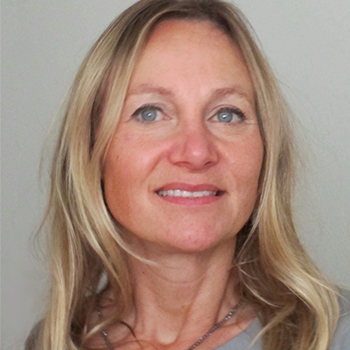
Because the rate of superbugs has elevated due to misuse of antibiotics, structural changes need to be made in the agricultural sector and in the overall medical treatment of humans and animals. Through the Global 1 Health Network, Dr. Wiktorowicz and her team are evaluating how antibiotics are used in low-, middle- and high-income countries around the world so that better regulatory measures can be developed and put in place for health care, agriculture, the environment and drug manufacturing. To do this, Dr. Wiktorowicz is identifying the most effective governance and policy strategies regarding antibiotic use in five countries (Senegal, the Philippines, Hungary, the Netherlands, and Canada). Particularly, she is examining how tensions and trade-offs between agricultural trade and human health policy can be managed by governments. This will help her provide decision makers and stakeholders with findings that will lead to the development of collaborative solutions. Further reading |
Improving care for youth with spinal muscular atrophy through play
Everyone agrees that an active lifestyle helps improve children’s health and quality of life. Physical activities are even more important to youth with spinal muscular atrophy, a rare genetic disorder that causes muscle weakness and associated complications that range from mild to severe. New drug treatments can help patients get stronger and live longer. But youth with spinal muscular atrophy may have limited opportunities and less motivation to exercise and stretch their muscles regularly. What if existing rehabilitative therapies could be redesigned to provide more fun exercises for youth with spinal muscular atrophy? Working directly with youth, families, and health care providers, Dr. Maryam Oskoui realized that the key to developing a more stimulating exercise program for children and adolescents with spinal muscular atrophy is—literally—through play. Dr. Oskoui collaborated with these groups to develop an “exergame,” a type of video game designed to encourage users to stay active from the convenience of their home. Dr. Oskoui’s exergame uses a low-cost sensor that tracks users’ body movements and measures their progress. Dr. Oskoui and her research team are now testing if the exergame is effective in providing accessible rehabilitation for children and youth with spinal muscular atrophy. She also hopes to identify better ways to measure the benefits of rehabilitative treatments for youth with this rare genetic disease. Her findings will help ensure care decisions support youth’s individual health needs and promote their independence. Dr. Oskoui is part of INFORM RARE, a Canadian research network that evaluates therapies and makes recommendations to improve care for children with rare treatable genetic diseases. Further reading |
Unanswered questions around antibiotic use are harming patientsDr. Daneman's BALANCE research program hopes to create a better evidence base for antibiotic treatments 
Bloodstream infections are a leading cause of death in Canada, but there are still questions about the preciseness of antibiotic treatments. Antibiotics are a useful way of curing blood infections, but excess antibiotics run the risk of causing antimicrobial resistance, a major danger inside and outside of hospitals. Dr. Nick Daneman is trying to strike a balance between curing infections and minimizing antibiotic harms. In his appropriately named BALANCE, or the Bacteremia Antibiotic Length Actually Needed for Clinical Effectiveness, trial, he is comparing the efficacy and side effects of seven days versus fourteen days of antibiotic treatment for bloodstream infections. If this trial confirms that shorter duration treatment is effective, it could lead to large global reductions in unnecessary antibiotic use. After BALANCE is complete, many questions will remain. The newly funded BALANCE+ trial will follow from BALANCE to provide an evidence base for other aspects of antibiotic treatment plans, including whether or not to ‘de-escalate' broad-spectrum antibiotics to narrower spectrum drugs, whether oral antibiotics are as effective as intravenous antibiotics, which oral antibiotics to choose, and how to deal with infections caused by intravenous catheters. BALANCE is the largest trial ever conducted among patients with bloodstream infections, and the study already counts 3400 patients across 73 hospitals. To Dr. Daneman, that is a lot of patients who will have improved care, while the general risk of antimicrobial resistance is decreased. Further reading |
Matter that MattersExamining how white matter damage in the brain is related to cognitive impairment in neurodegenerative diseases 
White matter is brain tissue that connects various regions for communication purposes. If it is damaged by neurodegenerative disease, it can lead to cognitive impairment. Dana Broberg is a PhD student at Western University. The primary goal of her research is to understand how damage in white matter identified with structural imaging compares to potential early-stage damage in white matter that appears normal. Dana hopes to determine whether early-stage damage to white matter in the brain detected through diffusion imaging is related to cognitive impairment in neurodegeneration. She also wants to validate a novel speech biomarker of cognition that clinicians can use to both interpret and provide early detection of cognitive impairment. Dana is the recipient of the 2022 CIHR-IA Anne Martin-Matthews Prize of Excellence in Research on Aging. Her research is part of the Ontario Neurodegenerative Disease Research Initiative (ONDRI), which aims to characterize five diseases leading to dementia: Alzheimer's disease, Parkinson's disease, frontotemporal dementia, amyotrophic lateral sclerosis, and cerebrovascular disease. Further reading |
Improving care for the sickest patients around the world
Dr. Srinivas Murthy is a Clinical Associate Professor in the Department of Pediatrics at the University of British Columbia's Faculty of Medicine. Improving how patients do is the main reason why he has been conducting research on emerging infections and outbreaks even before the COVID-19 pandemic. After the H1N1 pandemic in 2009, his team designed a platform clinical trial that has become one of the leading platforms during the COVID-19 pandemic. Now Dr. Murthy's team is using the Randomized Embedded Multifactorial Adaptive Platform Trial of Community Acquired Pneumonia to search for ways to improve care for influenza patients who have been hospitalized. Influenza is a common respiratory illness affecting millions of Canadians each year. It is also one of the primary causes of pneumonia leading to hospitalization. Dr. Murthy's clinical trial will identify what combination of therapies – antivirals, steroids, and immunomodulators – work best to improve these patients' health and get them home earlier. The team is also looking for the most patient-centered way of receiving consent from people in a clinical trial. Further reading |
Rapid, cheap, and effective detection of superbugsNew genetic markers of antimicrobial resistance should help all researchers rapidly detect and treat bacterial infections 
Dr. Dylan Pillai is leading a multinational group of researchers who are trying to eliminate ‘superbugs' through use of practical interventions that will reduce the prevalence of antibiotic resistance infections in humans and animals that are located close to Laguna Lake, Philippines. To achieve this, his team will first start a multi-pronged approach of surveillance and detection of antibiotic resistance in hospitals. Through use of an application-supported antibiotic stewardship program, physicians will have access to the Philippines National Antibiotic Guidelines and a rapid, point-of-care, nucleic acid amplification-based diagnostic test to detect community-acquired antibiotic resistant infections that are present among patients in ERs and ICUs. Dr. Pillai's group will conduct a genomic surveillance of highly antibiotic resistant organisms so that overuse of antibiotics can be lowered. Their point-of-care test will also lead to the development of rapid, affordable, and portable diagnostic tests that can detect numerous types of pathogens (such as SARS-CoV-2 or malaria in resource-limited Ethiopia and Sri Lanka). Further reading |
A new trial for immune deficiency will grow the capacity for gene editing therapy in Canada
Gene editing is a novel therapy in Canada, and University of Calgary hematologist Nicola Wright is positioning herself at the forefront of it with a pilot project aiming to build the infrastructure and expertise required for the therapy in Canada. Dr. Wright's lab, in collaboration with Dr. Donald Kohn of the University of California, Los Angeles, developed a base editing gene therapy strategy for CD3δ severe combined immune deficiency (SCID), a genetic disorder where infants are born with no immune system, making almost any common illness fatal. This study is a multi-centre Canadian clinical trial to test base editing in patients with CD3δ SCID, in which Dr. Wright and her team collect patient bone marrow cells, fix the incorrect CD3δ nucleotide with the correct one, then reinfuse the cells back into the patient with long term follow up for clinical outcomes and immune reconstitution. With that mistake in the DNA fixed, patients can produce their own T-cells to fight infection. Gene therapy within Canada is rare, and patients with immune disorders must typically travel to other countries for treatment, where the only commercialized therapy costs upwards of $2 million. Using the CD3δ SCID trial as a pilot, this project is expected to pave the way for more advanced therapies for other rare genetic disorders, allowing patients access to treatment closer to home. Living with SCID is complicated, but Wright's research shows a path forward for immunocompromised children to lead normal, healthy lives. This might be the first gene editing therapy trial for immune disorders in Canada, but it will not be the last. Further reading |
From cell to society - an equitable approach to researchUBC Vanier Scholar collaborates with community members to study clinical and social implications of HIV on women 
Thanks to the discovery of effective treatments, there's a unique opportunity to understand how HIV can affect healthy aging. Vanier Scholar Shayda Swann is interested in studying how the virus impacts women's reproductive health and hormones, like estrogen and progesterone, and then leads to other issues such as heart disease, osteoporosis, and liver damage. She is also examining how social circumstances impact the gender and racial discrimination, substance use, poverty, and stress that women experience with these health outcomes. That's why Ms. Swann wants to demonstrate how sharing research results directly with women who live with HIV through YouTube videos, research tea-parties, and art-based knowledge translation and exchange events will lead to valuable scientific research conducted hand-in-hand with community members. Ms. Swann is a member of the BC Carma Chiwos Collaboration (BCC3) Women's Healthy Aging Research team composed of women living with HIV, clinicians, academics, and community members based in British Columbia. They are seeking to better understand healthy aging in women living with HIV. Further reading |
Advances in corticosteroid use could greatly improve health outcomes for respiratory failure patients
Bram Rochwerg is an ICU doctor and researcher in Hamilton who looks after critically ill patients, many of whom are admitted with acute respiratory failure requiring support for their breathing. Respiratory failure can be due to a number of causes including COVID but also pneumonia, lung inflammation, sepsis, aspiration and others. Dr. Rochwerg's front-line experience has informed a new trial, funded by the Clinical Trials Fund, that seeks to answer pressing questions about the role of corticosteroids, a well-known anti-inflammatory drug, in patients with acute respiratory failure. The Corticosteroid Early and Extended (CORT-E2) Trial will test the efficacy and safety of early corticosteroid use in ICU patients with non-COVID respiratory failure and extending corticosteroid use in ICU patients with persistent respiratory failure, whether due to COVID or another cause. Corticosteroids are already commonly used in medicine. The trial will build on this previous expertise to determine some of the finer details of corticosteroid use, including whether non-COVID patients will benefit the same way that COVID patients do, and the optimal duration of therapy, especially in those that aren't getting better with traditional supportive care. According to Dr. Rochwerg, if early or extended corticosteroid treatment proves beneficial, rolling it out will be straightforward given this is a low-cost intervention (corticosteroids are generic and relatively inexpensive) and easy to administer (can easily be given orally or intravenously) and will directly improve the outcomes of the over 30,000 Canadians each year who are hospitalized with respiratory failure due to any cause. CORT-E2 is part of the larger Canadian-led PRACTICAL (Platform of the Randomized Clinical Trials in Critical Illness) platform trial. Platform trails are designed to maximize research efficiency by providing an opportunity to study multiple interventions within the same clinical trial infrastructure. As such, Dr. Rochwerg and the CORT-E2 and PRACTICAL teams are engaged with a wide variety of fellow researchers, clinicians, patients and partners to make a real difference in improving the outcomes of critically ill patients across Canada and worldwide. Further reading |
Can our own microbiomes help treat and prevent antimicrobial resistant organisms?
According to a 2022 Public Health Agency surveillance report, antimicrobial resistance is one of the top 10 global public health issues. Most approaches to treat infections rely on antibiotics. But antibiotic drugs are becoming less effective as drug-resistant pathogens emerge, and we need to develop and test new therapeutics to fight antimicrobial resistant organisms. Dr. Bryan Coburn, a clinician-scientist and infectious diseases specialist at the University Health Network, is pursuing the development of novel treatments for antimicrobial resistance using microbial consortia, or simply put, a mixture of live cultured bacteria in a clinical trial called Microbial Ecosystem Therapeutic-2 (MET-2). Dr. Ashley Rooney, a postdoctoral fellow who defended her doctoral thesis under Dr. Coburn's supervision in 2022, suggested that microbial consortia may decrease infections caused by antimicrobial resistant organisms. To better understand the potential benefits of microbial consortia, Dr. Coburn and his team are working on a pilot clinical trial called the Antimicrobial Resistant Organism Decolonization After Microbiome Perturbation. The study will evaluate if a consortium of bacteria given in pill form can help decrease or eradicate antimicrobial resistant organisms, improve patients' microbiomes, and complement antibiotics for treatment and prevention of infection. The researchers will determine if they can safely recruit people into the trial. They also hope their preliminary findings will lead to a larger clinical trial of MET-2 in the future. Further reading
|
A futuristic cure for blood cancer is within our reach, and Dr. Kekre believes Canada should get on board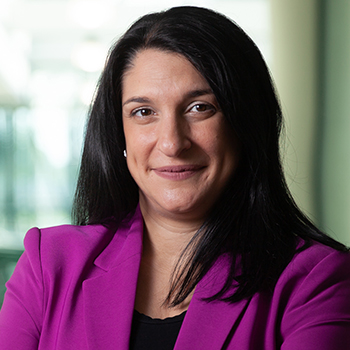
Natasha Kekre is a hematologist at The Ottawa Hospital and associate professor at the University of Ottawa devoted to a ground-breaking therapy for leukemia. After seeing many of her patients succumb to their cancer, despite aggressive chemotherapy, Dr. Kekre is now turning her expertise to CAR-T therapy, a personalized therapy that uses the patient's own genetically modified immune cells to fight leukemia. CAR-T cells are made by isolating a patient's immune cells from their blood, genetically modifying and activating the cells in the lab, and then re-administering them to the same patient, allowing for a patient's immune cells to be targeted against their cancer. However, this personalized treatment requires expertise and infrastructure that is rare in Canada. Dr. Kekre thinks that her trial should provide the necessary information to approach Health Canada for clinical approval and bring this Canadian manufactured product to standard-of-care for Canadian cancer patients. Dr. Kekre and her team are hoping to show that Canadian-made CAR-T cells that target a specific tumour protein called CD19 can improve the lifespan of patients with lymphoblastic leukemia. It will also support her goal of demonstrating to Health Canada that these modified cells can be made in Canada. The most rewarding aspect of her work is, of course, the hope that she brings to cancer patients. Canadian-made CAR-T cells offer hope against a very aggressive form of cancer. According to Dr. Kekre, this trial focuses on bringing a new therapy to Canada so that Canadians can benefit as the trail unfolds. If she can demonstrate that CAR-T cells are effective and safe, Canadians will have access to a new therapy against leukemia. Further reading |
Precision medicine offers a way to make mechanical ventilation safer for patients with lung failure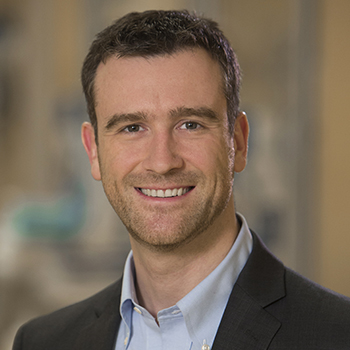
When patients develop acute lung failure and can no longer breathe on their own, mechanical ventilation is used to sustain life by breathing for the patient. While this is a life-saving intervention, it can cause injury to the lungs by over-stretching them, leading to worsened organ failure and death. But a clinical trial by Ewan Goligher at the University Health Network will test a new strategy for mechanical ventilation that he believes will be safer and more effective, minimizing the risk of lung injury while still keeping the patient breathing. Dr. Goligher is exploring what happens when the ventilator is set to avoid high pressures rather than high volumes. This allows more precision in care, as high volumes are likely only harmful to patients with high lung pressure, and in fact, should not be avoided for patients with low pressure. Acute lung failure has a high mortality rate, upwards of 40%, and while mechanical ventilation is necessary to keep the patient breathing, it's not without its own risks of lung damage. The research of Dr. Goligher might lead to more precise ventilation, where settings are tailored to each patient instead of a one-size-fits-all approach. This represents a move towards a “precision medicine paradigm for ventilation,” says Dr. Goligher. Issues of lung failure were only exacerbated by the COVID-19 pandemic, giving even stronger support for change. If Dr. Goligher's findings are convincing, an already life-saving procedure—mechanical ventilation—is going to become more precise, and safer as a result. Further reading |
Accelerating Clinical Trials (ACT) Pan-Canadian ConsortiumNew pan-Canadian Clinical Trials Consortium promises to establish stronger links between clinical trial stakeholders and bolster Canada's research networks 
Timely clinical trials are critical to protecting and improving human health. Unfortunately, many barriers exist to conducting clinical trials in Canada, which is where the Accelerating Clinical Trials (ACT) Consortium steps in. The ACT Consortium is a large network of clinical trial researchers, patients, government and industry from across Canada , headed by a 12-person Operations Committee and two co-chairs, Dr. P. J. Devereaux of McMaster University and Dr. Guy Rouleau at the McGill University Health Centre. The purpose of the ACT Consortium is to facilitate national clinical trials, Canadian participation in international trials, and implement their results on a large scale. The Consortium is one arm of Canada's much larger Biomanufacturing and Life Sciences Strategy. Clinical trials, particularly randomized control trials, are essential to the healthcare industry, providing hard evidence on the effectiveness of new drugs and therapies. But undertaking clinical trials and facilitating important discussions among stakeholders can sometimes be difficult , which is why the ACT Consortium is working on expanding and supporting existing clinical trial units and networks and developing new networks in priority areas. But the ACT Consortium's ambitions go beyond networking and represent a major shift in how clinical trials are done in Canada. The 250-person team is planning to improve the national ethics approval process , simplify randomized control trial contracts, create efficient data sources, and explore novel trial designs. All in all, the ACT Consortium should have the intended effect of democratizing clinical trials and aiding in equitable access, participation, and information-sharing. But as Nominated Principal Applicant Dr. Devereaux says, the most rewarding part of the ACT Consortium for him is getting to work with passionate individuals from across Canada who are focused on improving health through the advancement of clinical trials in Canada. The co-chairs of the ACT Consortium are Dr. P.J. Devereaux and Dr. Guy Rouleau. The pan-Canadian members of the Operations Committee are Dr. Wayne Clark, Dr. Dean Fergusson, Dr. Amit Garg, Dr. Jeremy Grimshaw, Dr. Valerie Harvey, Dr. Corinne Hohl, Dr. Catherine Joyes, Dr. Susan Marlin, Dr. Emily McDonald, Dr. Louise Pilote, Dr. Stuart Nicholls, and Dr. Lawrence Richer. Further reading |
Working toward Inuit food sovereignty in Arviat, Nunavut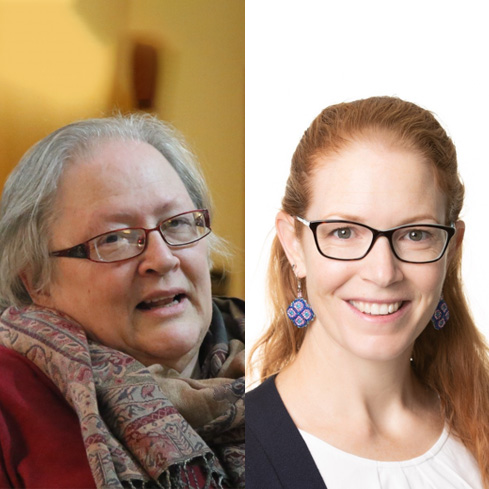
The incidence of food insecurity in Nunavut is the highest in Canada, and four times the national average. Shirley Tagalik, Dr. Gita Ljubicic, and their research team based at McMaster University are investigating a coordinated community harvest of geese as a potential path to enhancing food sovereignty in Arviat, Nunavut. Shirley is the Director of the Aqqiumavvik Society, an organization working to address food insecurity and other community challenges in Arviat, Nunavut, and a partner in the Nunavut Network Environment on Indigenous Health Research. She researches areas of education, child and language development, youth engagement and suicide prevention, determinants of health, healing, cultural revitalization, climate change, and food security. Working with Inuit elders over 30 years, Shirley documents Inuit cultural knowledge and works to rebuild the strengths of cultural concepts into community programs. She was recently awarded a Governor General Innovation Award for her work on Arctic Corridors and Northern Voices Research. Dr. Gita Ljubicic is an Associate Professor in the School of Earth, Environment and Society at McMaster University, and is a Canada Research Chair in Community-Engaged Research for Northern Sustainability. She works at the intersection of cultural and environmental geography, driven by a deep commitment to respecting and learning from Indigenous knowledge alongside science in order to address complex socio-ecological issues. Over the past 20 years, she has worked with Inuit community members and organizations across Inuit Nunangat (homelands) in Canada on projects that aim to address community-identified priorities. Shirley, Gita, and their team aim to ultimately improve research practice, contribute to decision-making, and support Inuit self-determination in research. Further reading
|
Inuit knowledge to support climate change adaptation
Sherilee Harper, MSc, PhD, is a Canada Research Chair in Climate Change and Health and an Associate Professor in the School of Public Health at the University of Alberta. Her research investigates weather, environment, and health in the context of climate change in Canada, Uganda, and Peru. She collaborates with government and community partners to prioritise climate-related health actions, planning, interventions, and research. She is a Lead Author on the Intergovernmental Panel on Climate Change (IPCC) Special Report on the Ocean and Cryosphere in a Changing Climate; Lead Author on the IPCC's Sixth Assessment Report; serves on IPCC's Gender Task Group; and serves on the Editorial Board of Epidemiology and Infection. Dr. Harper is the lead Principal Investigator for the Niqivut Silalu Asijjipalliajuq ("Our Food and Climate Change") research program. This research program will promote adaptive capacity among Inuit by enhancing local capacity to detect and respond to food-related climate-health outcomes; and evaluate opportunities for food-related climate change adaptation polices, programs, and actions. The program has 2 research themes: (1) strengthen Inuit food sovereignty for climate change adaptation, and (2) share Inuit knowledge to support climate change adaptation. It will also address the important themes of Inuit knowledge (IK) in research, Inuit health, nutrition, and wellness, climate change adaptation, and gender. This Nunavummiut-led research approach will offer best practice guidance for other initiatives; will create leaders with expertise in climate change, country food, and Inuit health; and demonstrate the importance of Inuit knowledge and Inuit Qaujimajatuqangit for adaptation, enabling communities to manage the food-related health effects of climate change. Further reading
|
Enhancing food security in the Northwest Territories
Kelly Skinner is an Associate Professor in the School of Public Health Sciences at the University of Waterloo. In 2022, the Canadian Institutes of Health Research and the Public Health Agency of Canada awarded Dr. Skinner the Applied Public Health Chair in healthy environments for climate change and food security in northern Canada. This Chair aims to better understand the intersections between food security, climate change, and Indigenous communities in the Northwest Territories (NWT), northern regions in Canada, and globally, the circumpolar north, with an emphasis on community action, self-determination, and knowledge sharing. Dr. Skinner's research engages with northern communities, partners, and governments on interdisciplinary, community-based, and collaborative health and social projects related to food, nutrition, food security, health and risk communication, and the broader context of northern and Indigenous food systems and environments. This work has involved dietary assessment with youth, program evaluation, and community development and has moved towards social justice and social policy for improving food security and advocacy for food sovereignty. Dr. Skinner is the Nominated Principal Investigator for a project aiming to learn from and enhance community capacity to address place-based priorities to inform climate change and food security action locally, regionally, and territorially. The approach includes cross-cutting themes of traditional knowledge, governance, youth, and sex and gender, and is grounded in participatory action research. Her multidisciplinary team works closely with partners in six communities across four regions in the NWT to understand the potential of local actions, and to scale-out and scale-up learning. This research promotes community action and self-determination of local food systems in communities in the NWT and ultimately improves health outcomes. The knowledge gathered, and shared across multiples levels (locally, regionally, territorially, government decision-makers/ knowledge users) will help facilitate development of more effective programs and policies to address food security and climate change in the NWT. Further reading
|
- Date modified:






